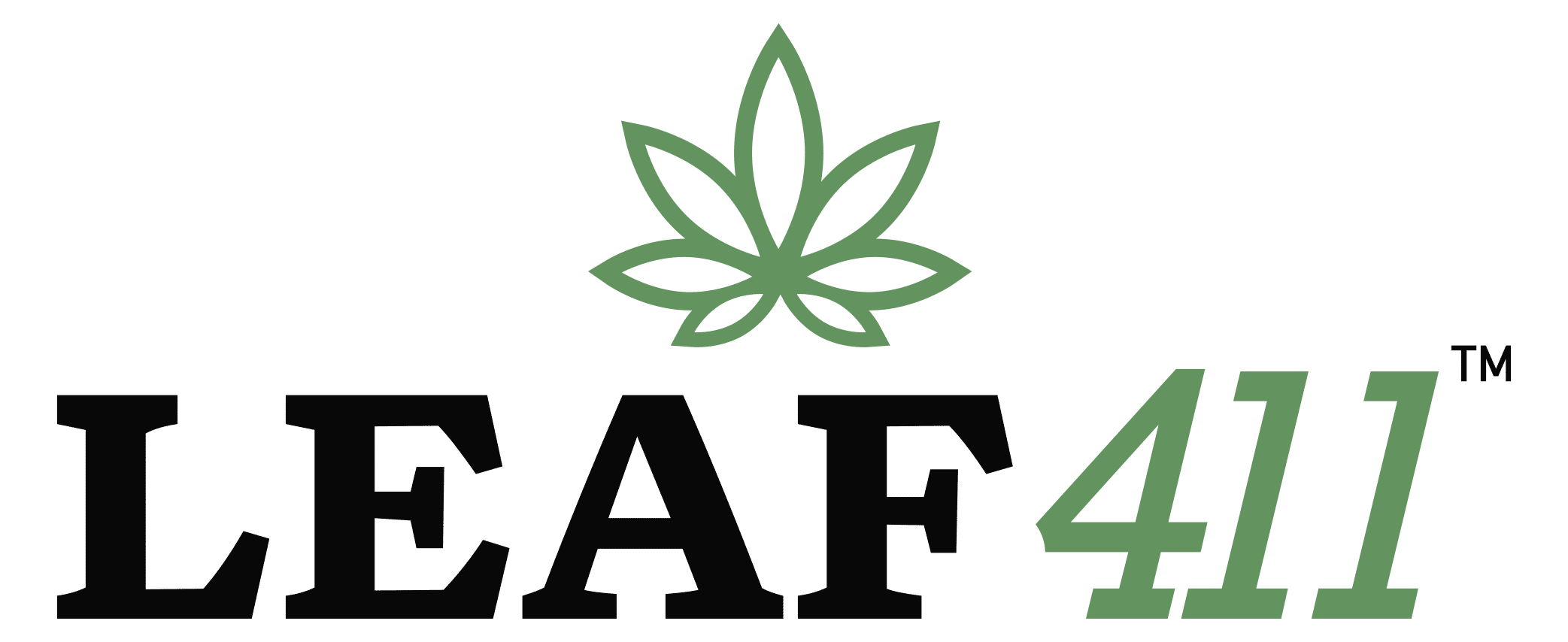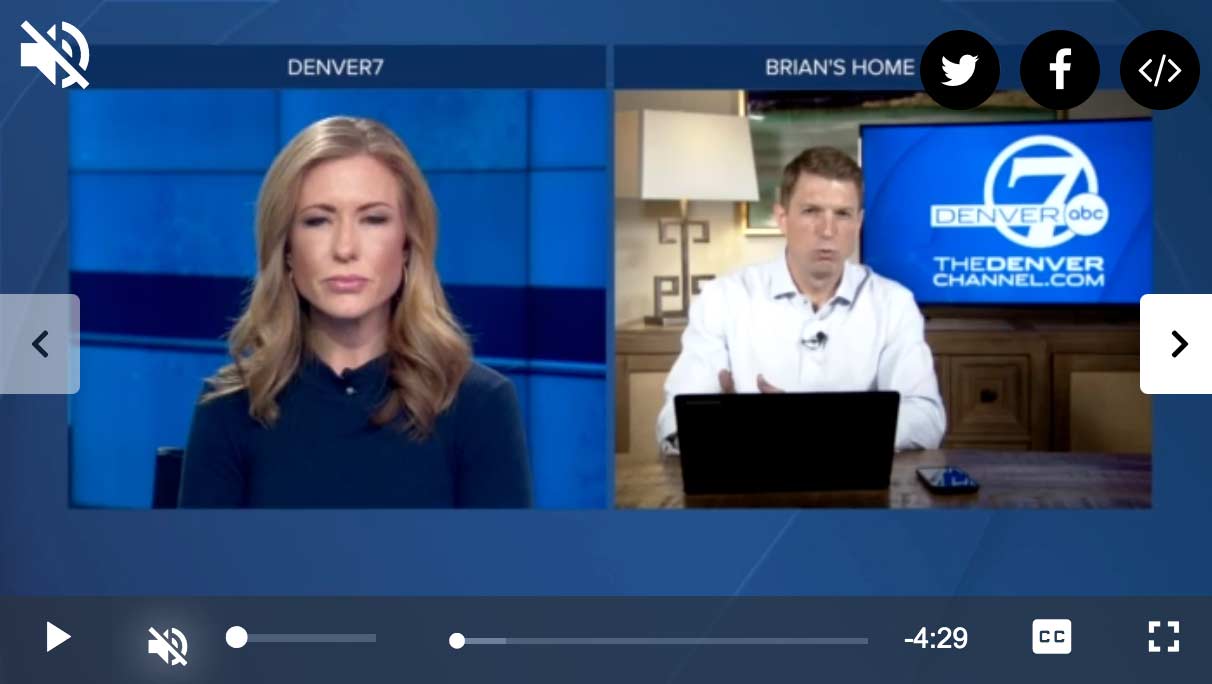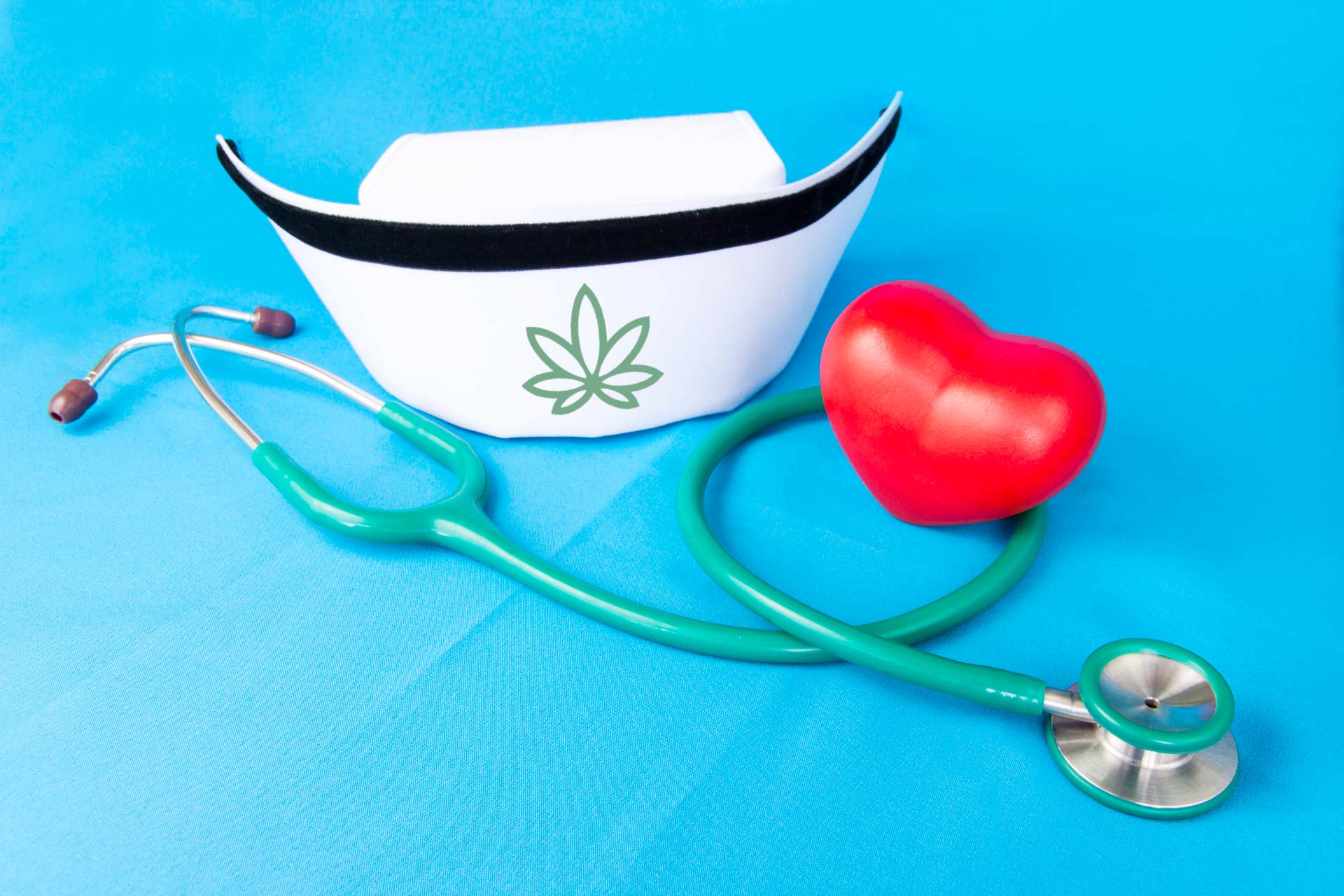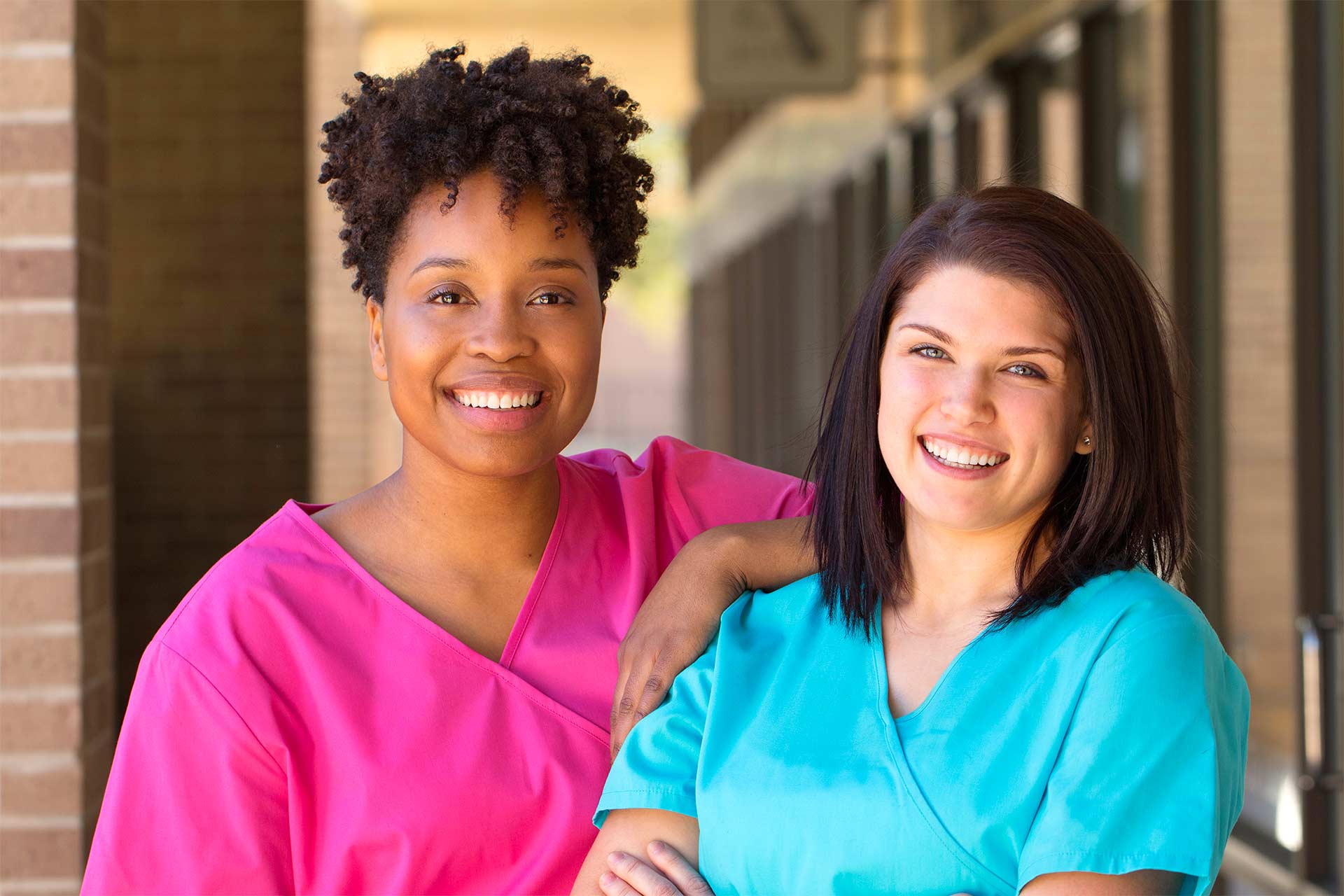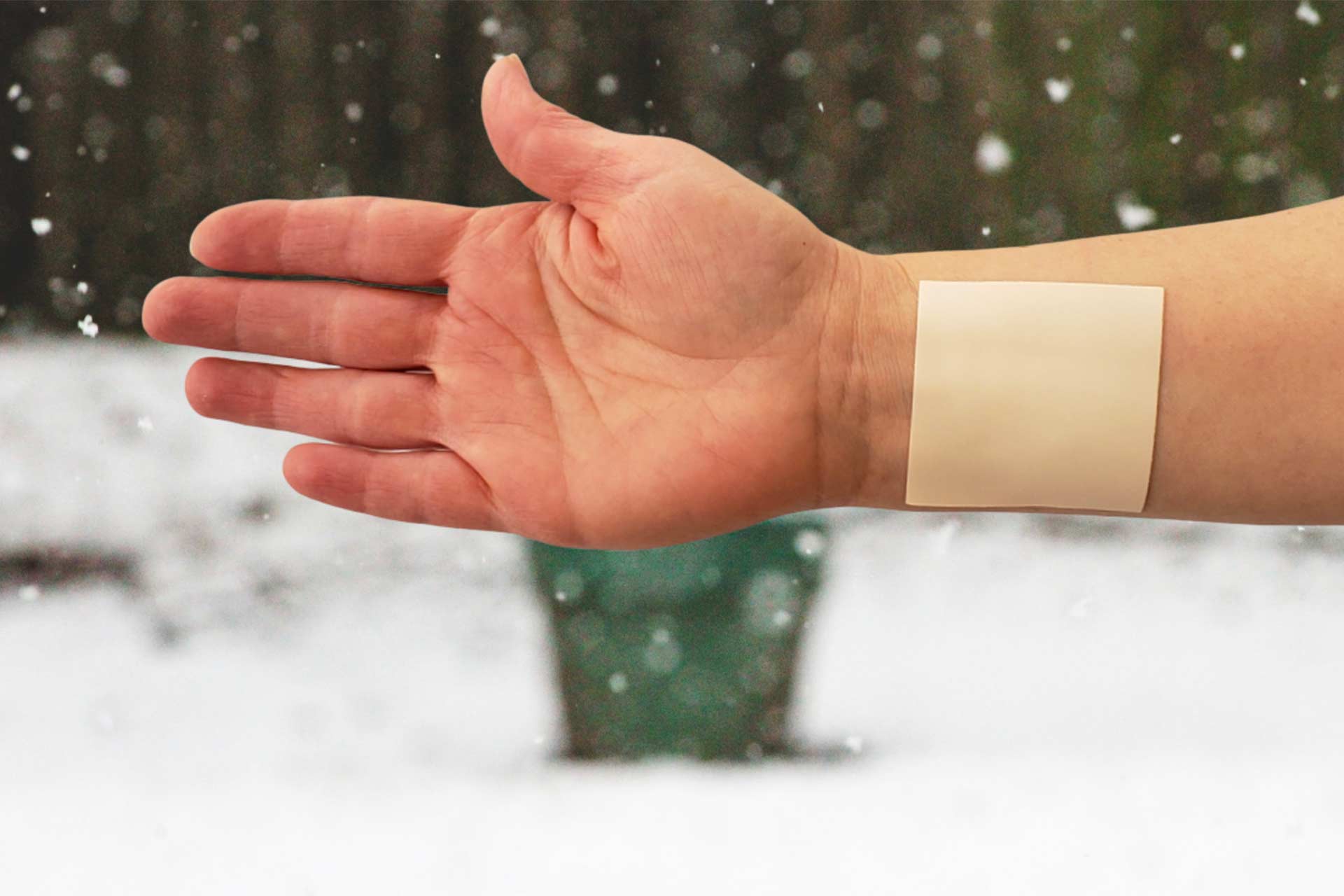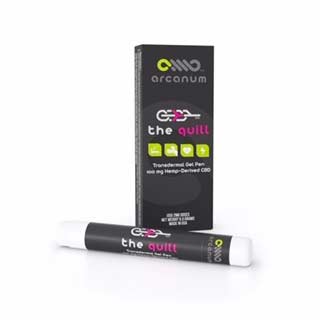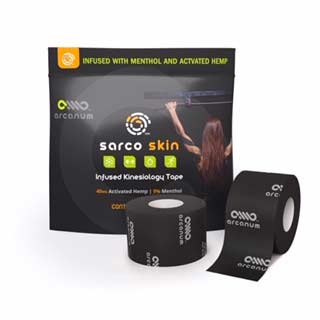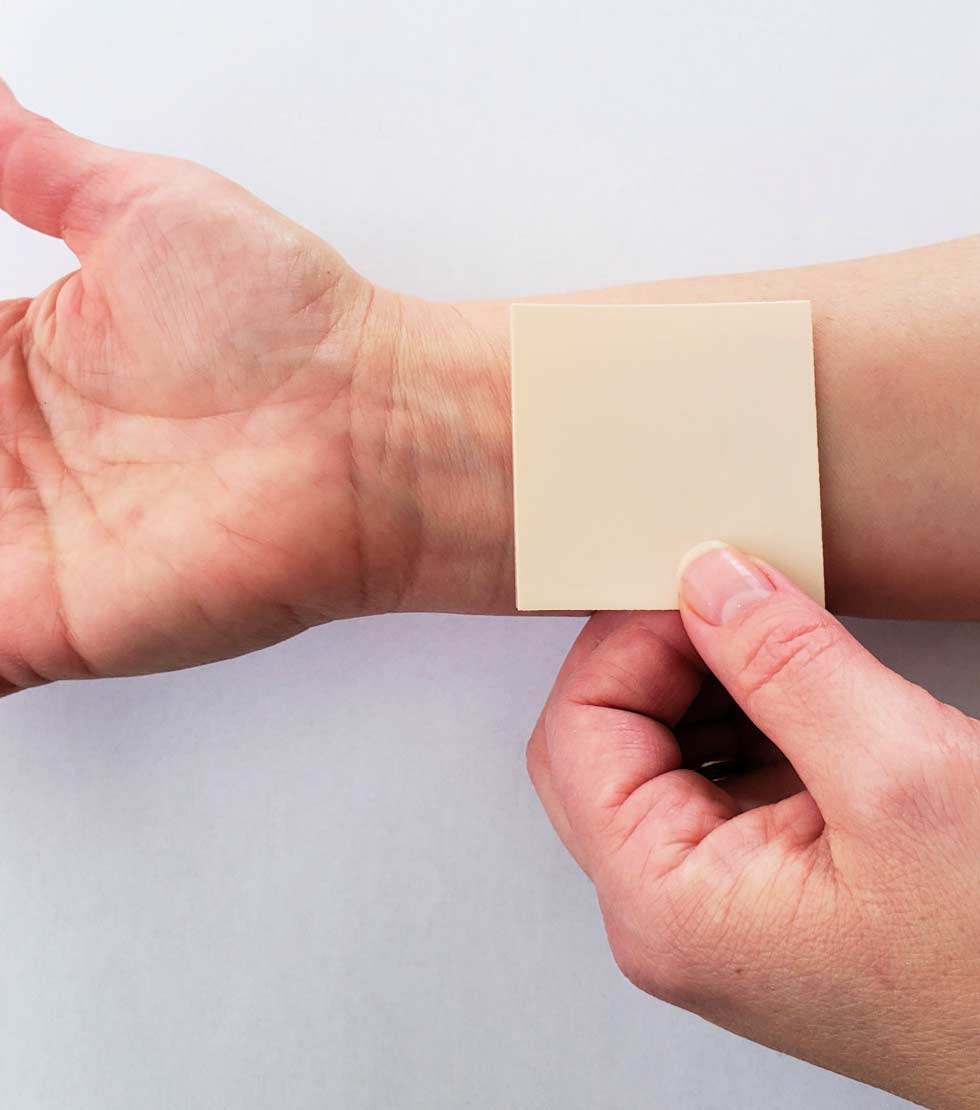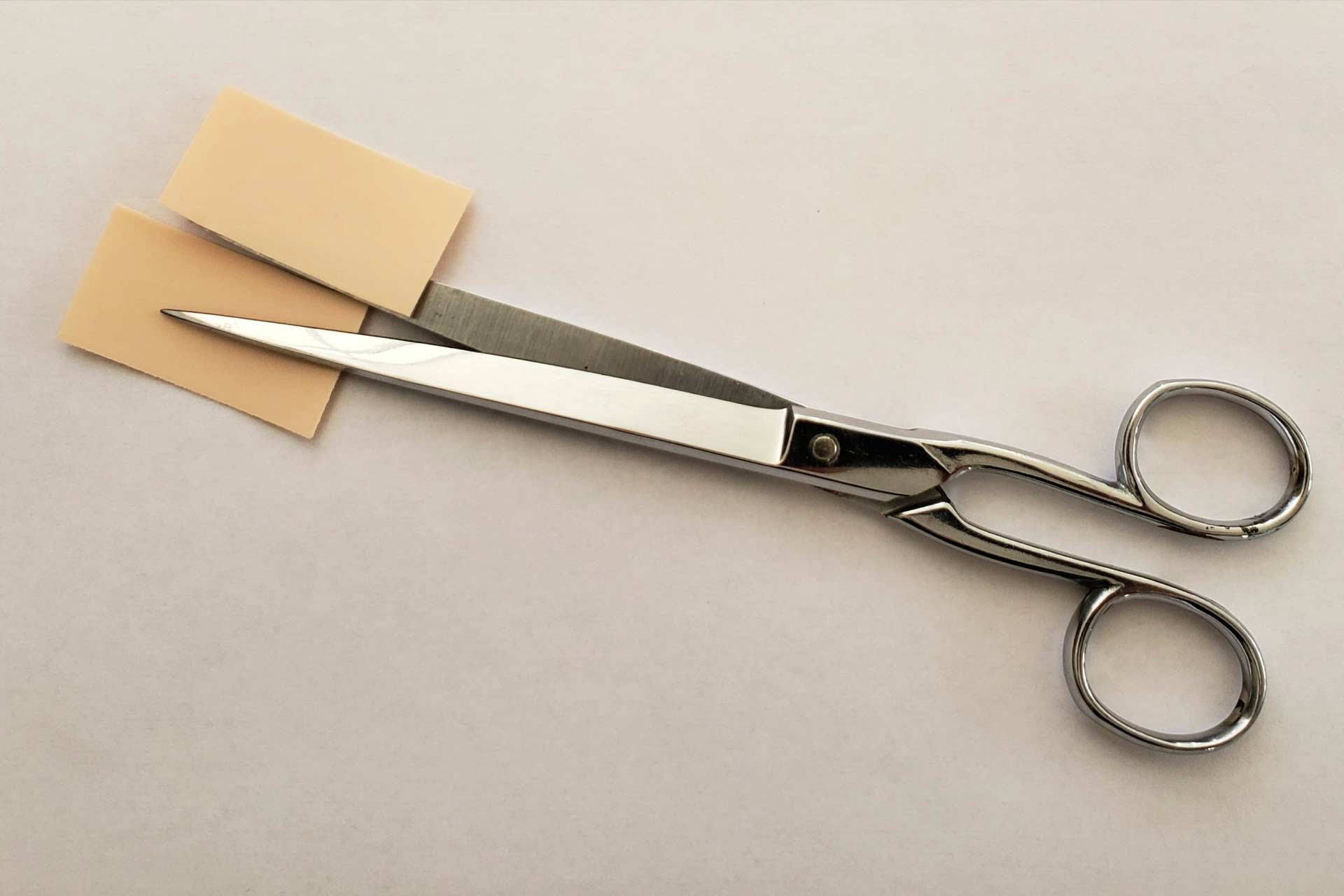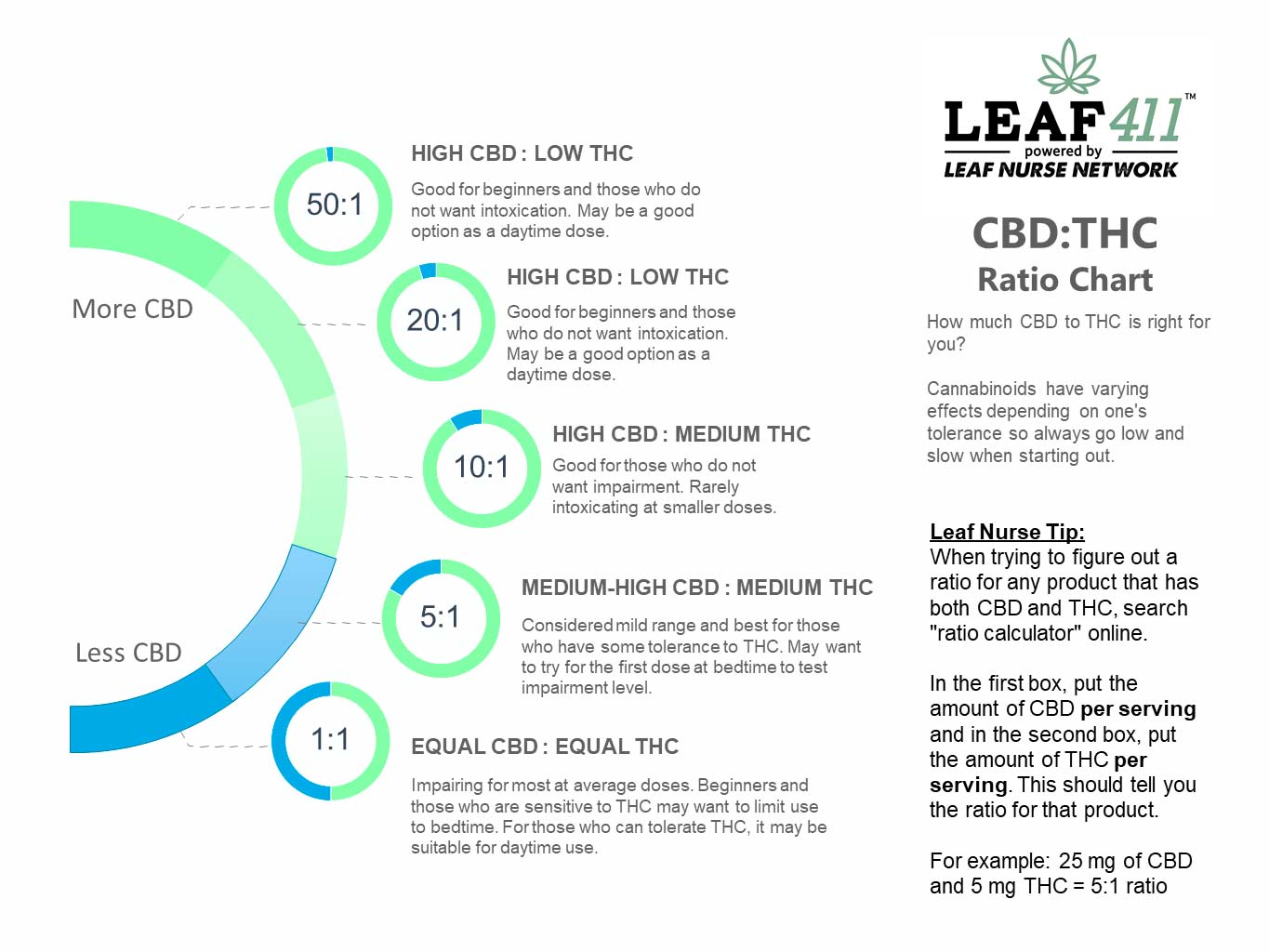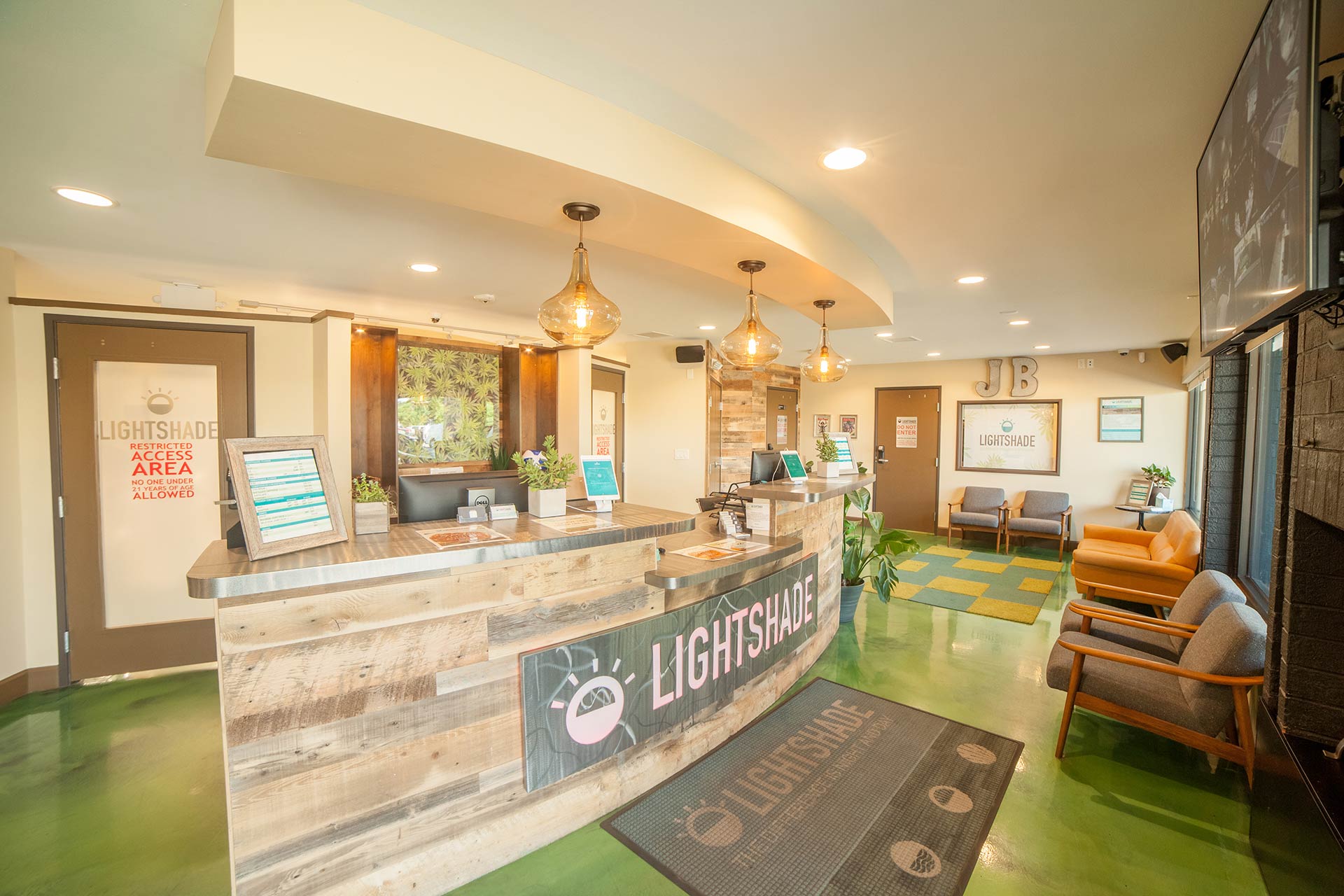Leaf411 Supporter Spotlight: Mike Lempert, Director of Logistics at Seed & Smith
Medically reviewed by Katherine Golden, RN
Written by Denise Rustning
At Leaf411, we love sharing our supporting members’ stories. We really do believe that our members are the best in the industry, and hope that you’ll consider supporting them when shopping.
As a founding member, Seed & Smith has supported the Leaf411 mission from Day One. Their commitment to education and transparency elevates the industry and provides a counternarrative against outdated stereotypes about cannabis.
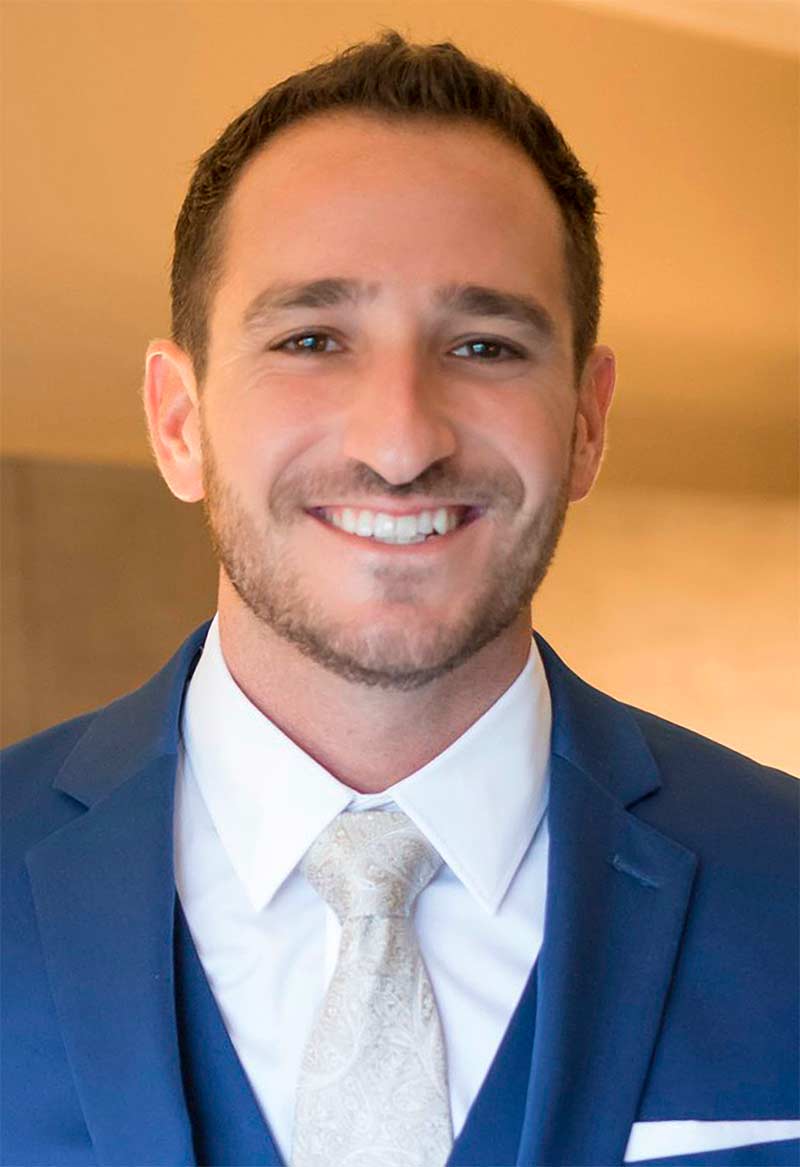
We recently checked in with Mike Lempert, Director of Logistics at Seed & Smith, to learn more about the Colorado dispensary’s current work. We also got his thoughts on the emerging consensus in legal states that cannabis is an essential need, following up on his recent interview with Denver 7 News.
Recognizing Cannabis as An Essential Need During the COVID-19 Crisis
The legal marijuana market sits in an interesting spot right now. While marijuana remains illegal at the federal level, states with legal medical and/or adult-use (recreational) marijuana have generally classified dispensaries as essential businesses allowed to remain open during the COVID-19 response. Dispensaries are being acknowledged as similar to pharmacies, providing essential medicine to patients.
Many patients, consumers and industry members are thinking about what this will mean for cannabis once the COVID-19 emergency passes. We asked Mike for his thoughts on this topic.
“My stance has always been that there are very serious medical issues that people use cannabis to treat. People come into our dispensary who need cannabis to live a ‘normal life.’ They may be suffering from MS or Parkinson’s disease or cancer or insomnia. Whatever the case may be, there’s a lot of relief (through cannabis),” he said.
“Absolutely, cannabis should be deemed essential,” Mike said. “If people are relying upon something to live a normal life—we’re not talking about a vice but about actual ailments and problems—then 100% cannabis should be deemed essential. It shouldn’t even be questioned whether we need to stay open during times like this.”
Keep reading to learn more about how Seed & Smith is ensuring employee and customer safety while providing access to high-quality legal cannabis amid the COVID-19 business restrictions.
Seed & Smith’s Commitment to Quality and Transparency
Have you ever been curious about how legal cannabis is cultivated, harvested and extracted? Part of the Seed & Smith experience is their free cannabis grow tour featuring their cultivation, production and packaging areas. While the tours have been temporarily cancelled due to COVID-19 restrictions, the spirit of transparency continues in every area of Seed & Smith’s work.
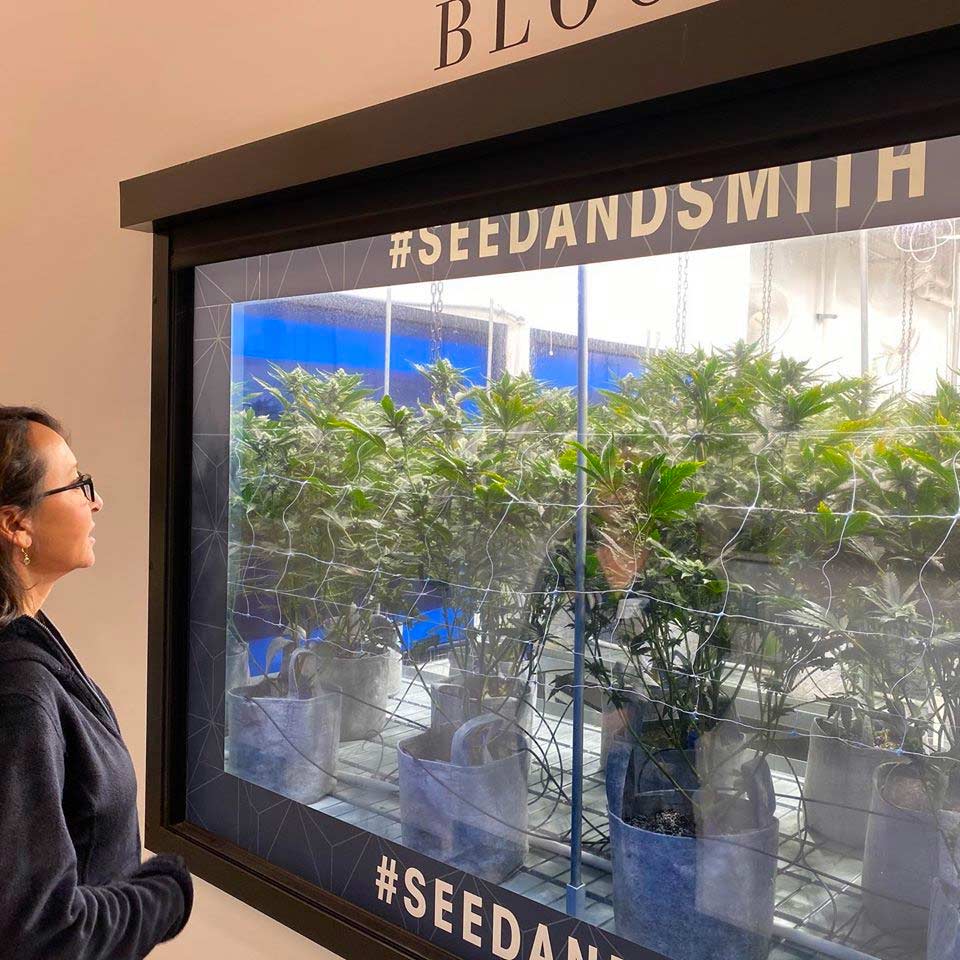
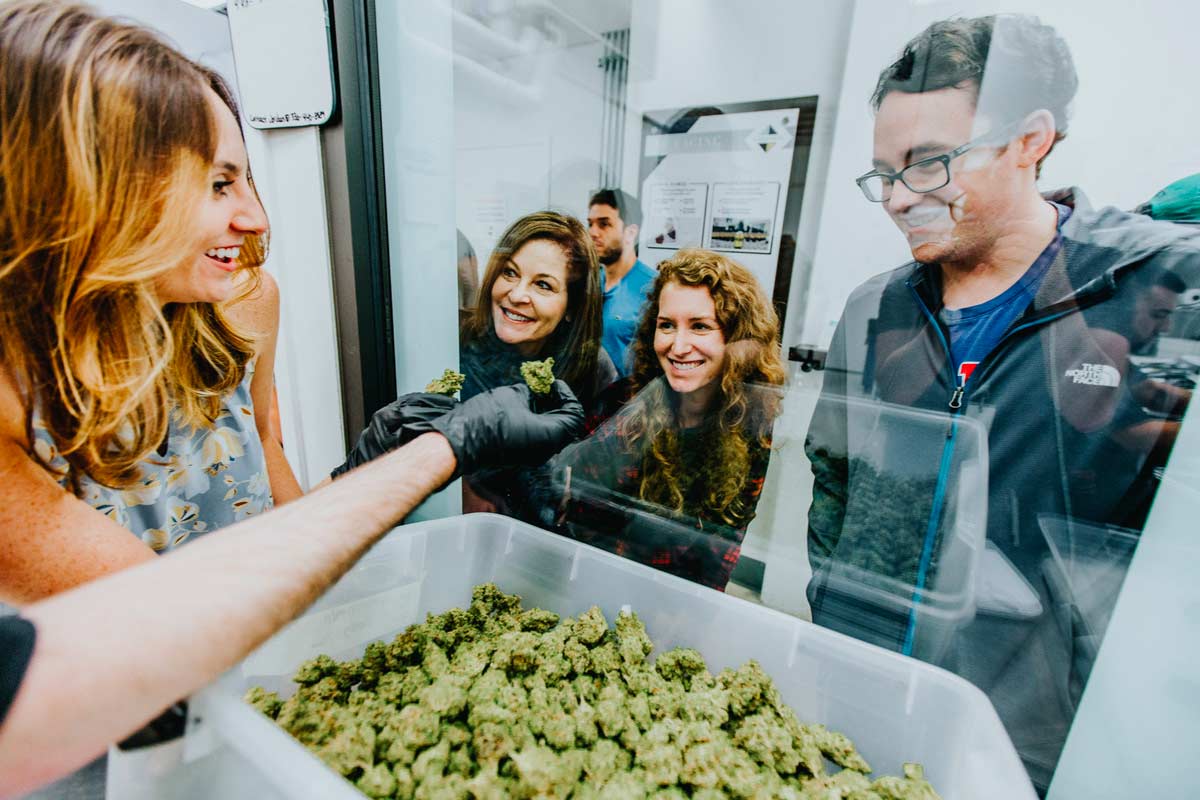
When we asked Mike what makes Seed & Smith different from the competition, transparency was at the top of his list.
“We consider ourselves to be pioneers in the industry,” he said. “Seed & Smith was formed at the tail end of prohibition for recreational use. We wanted to hit the scene hard with transparency and prove that cannabis isn’t this big, scary drug like a lot of people make it out to be. We wanted people to understand exactly how our cannabis is grown, how it’s packaged, how we extract it to make the concentrates, where it’s sold and who sells it—basically every detail about our product.”
Mike explained how their approach is different, saying, “The cannabis industry is notorious for closing doors and keeping things very close to the vest. We wanted to dismantle that. I think we’ve been extremely successful.”
Seed & Smith’s owners looked to craft breweries as a model for doing things differently.
“Breweries were opening up their doors for the public to come see how their beer was made. You could go and talk to the head brewmaster. You could take a tour. You could see the cleanliness of the facility. You could see the beer getting canned.”
Seed & Smith adapted that model for their own operations, “being fully transparent and allowing people to get the freshest product,” said Mike.
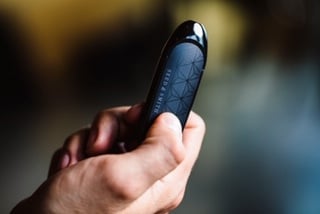
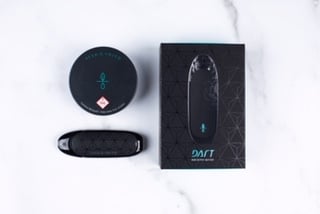
The Seed & Smith Dart: Making a Better Vape
We asked Mike what Seed & Smith products he’s most excited about these days.
“We’re extremely proud of our Dart vaporizer, which is a pod-based system,” he said.
“We worked with CCell, the hardware manufacturer, for over a year to dial this product in. Now we’re doing a big push for people to try the Dart vape as part of a move to a cleaner product. If you’re concerned about health risks, you should understand what goes into products that you end up ingesting or inhaling into your body.”
“A lot of companies that make cartridges or vaporizers don’t show you how their oils are made,” said Mike, “At Seed & Smith, you can visit and see our entire process. You can see the product that’s used to make it (the pods). You watch how it’s made through videos. You can see into our extraction rooms. Everything is transparent.”
Mike also talked about the recent vaping crisis that was connected to some manufacturers using Vitamin E acetate or other cutting agents which caused serious health issues.
Seed & Smith was ahead of the curve, however, since they do not use any cutting agents in their vape products. “From day one, it’s been 100% cannabis extracts in our cartridges and that’s it,” Mike said.
Partnering with Leaf411 to Provide Factual Cannabis Information
Mike talked about the challenges of providing factual information to customers, given the federal restrictions on cannabis research. “There’s not enough research done on cannabis, and we fully understand why that is,” he said.
He discussed how the lack of research means that people often fall back on anecdotal reports about how a product worked for a specific person, which may not end up being true for everyone. To navigate this tricky terrain, Seed & Smith sticks with providing education on what they know—their product.
“We give the facts in a clear and concise manner, about what we’re doing and how we grow,” he said.
Seed & Smith also relies on their partnership with Leaf411 to provide education on potential medical benefits of cannabis.
“We partner with Leaf411 to help us deliver reliable, factual information,” Mike said. “Focusing on providing factual information is the biggest key for us because there’s so much misinformation out there right now. We don’t want to add any more.”
At Leaf411, we know misconceptions about both the cannabis plant and the cannabis industry are everywhere. Mike shared a very similar perspective when discussing the education needs that he sees in the cannabis space.
“I’ve only been involved in the industry for three years, and in that three years I’ve learned a lot. I came with a lot of preconceived notions, most of which were wrong. So I’m the perfect poster child for the need for reliable information and education,” he said.
“There’s going to be a huge amount of people in this country and probably around the world shifting to cannabis use at some point. Providing reliable information about what they can expect and what’s in these products is extremely important.”
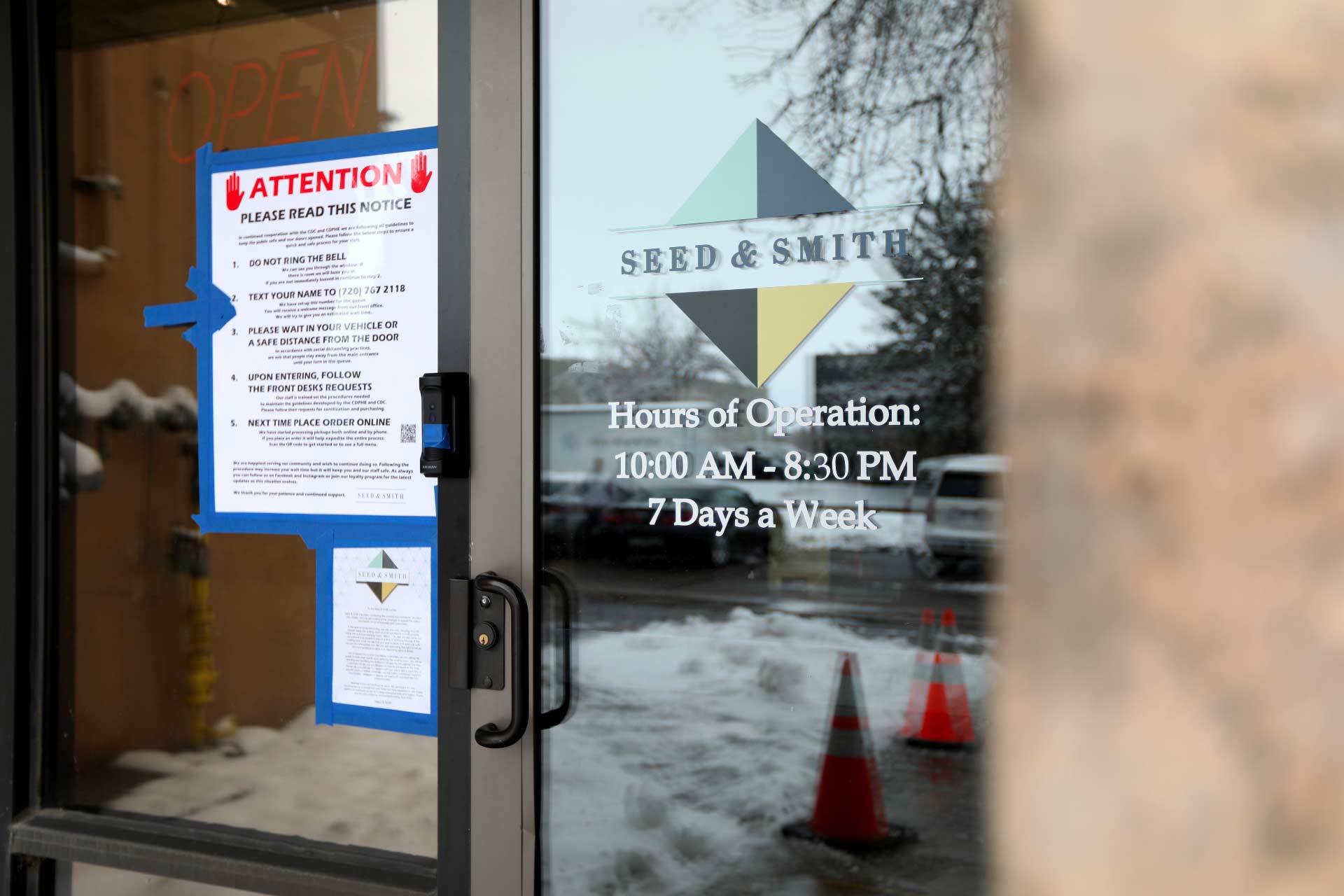
Maintaining Safe Dispensary Operations During COVID-19
You’ve likely noticed the impact of COVID-19 on businesses you frequent in person or even online as the government rolls out new rules and restrictions.
Cannabis dispensaries are no different. In Colorado, the Marijuana Enforcement Division (MED) released several rounds of emergency rules for dispensaries that emphasize extreme social distancing and revise retail rules to protect both employees and customers.
We asked Mike how Seed & Smith’s operations have been impacted by COVID-19.
He answered, “In just about every aspect, our company and the industry itself has been affected.”
“We have 12 cultivation rooms with over 20,000 square feet. We’ve redone the workflow so that growers can work in different rooms at different times. We’re also able to avoid having two employees working together on a specific task,” Mike said.
He went on to describe how the packaging area was expanded and reconfigured to spread out employees and limit interactions. Employees with jobs that can be done from home are required to work remotely.
“It’s extremely tough for me to work remotely. I’m very much in the trenches on a daily basis. But I and my co-directors understand the need to not only reduce our risk of getting sick but to reduce risk to our employees as well. We’re making sacrifices all around but it’s for the greater good—for the company, our employees and our customers,” he said.
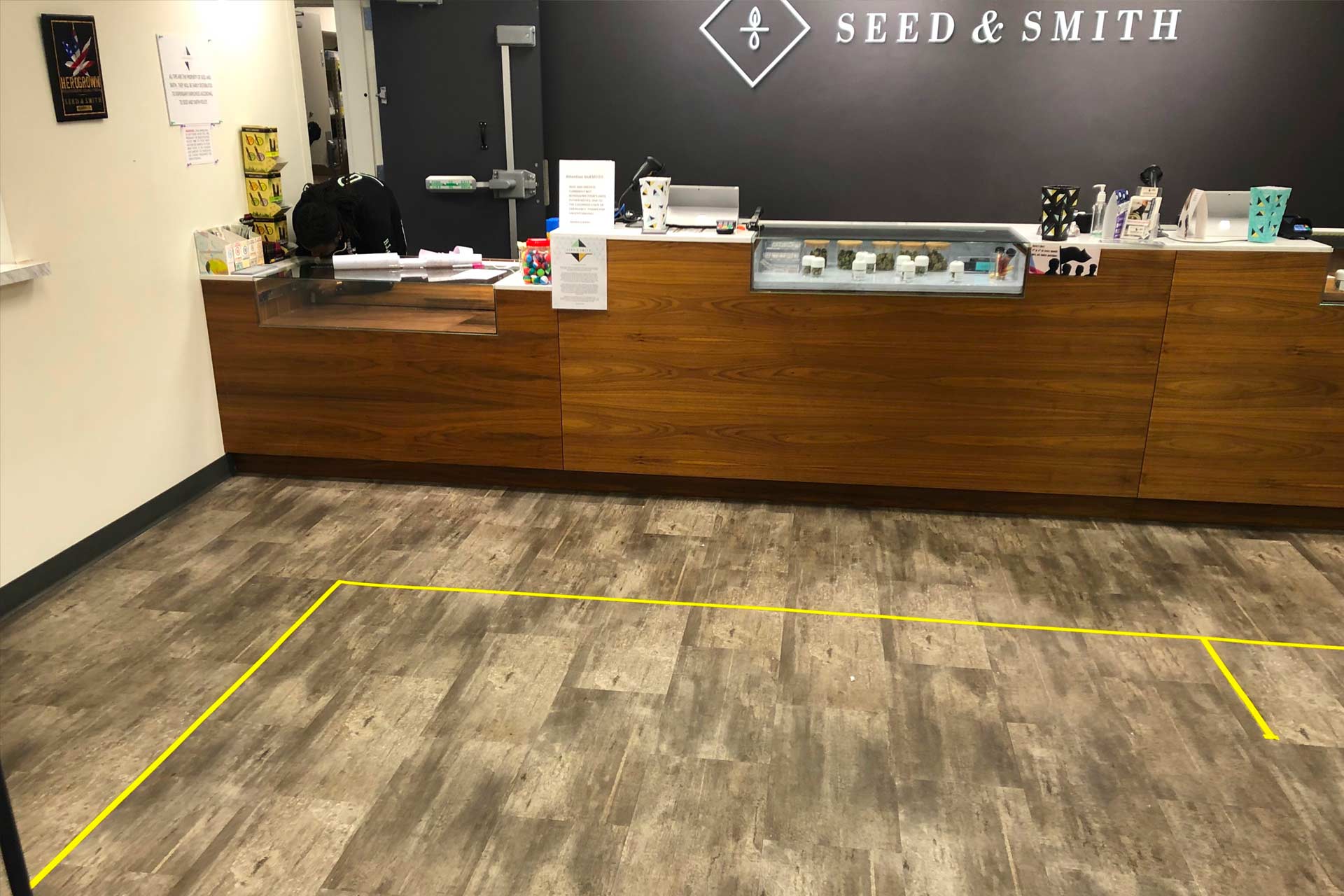
How Seed & Smith Is Working to Keep Customers Safe
Mike described precautions that retail employees are taking to regularly disinfect all work areas and practice extreme social distancing while assisting customers. Cash registers have been spaced farther apart and customers have the option to pay by debit card at curbside for online orders. Cash payments must be made inside the store.
As of this writing, customers who order online from Seed & Smith online via Weedmaps will receive a “Thank You” discount code for a future purchase.
As state-issued rules continue to change, you can stay up to date on Seed & Smith’s operations on their blog, Facebook and Instagram.

Answering Your Questions About Cannabis and COVID-19
We know that many of you are worried about the impact of COVID-19 on both your access to cannabis medicine and on other areas of your life, as well. You can trust Leaf411 as a reliable source of information in this challenging time.
We’re here for you, with the clinical knowledge and resources to answer your questions about safely purchasing and using legal marijuana and CBD hemp products. We’re also ready to take your COVID-19 questions at the Leaf411 hotline.
Call 844-LEAF411 (844-532-3411) at no cost to have your questions answered by one of our fully-licensed RNs.
Don’t like talking on the phone? We can also answer your questions via chat during hotline hours. Look for the chat icon in the lower right corner of the Leaf411 home page. https://leaf411.org/
Also, keep an eye on our Facebook page, where we share updated information, webinars and education resources on COVID-19 and cannabis.
The Leaf411 cannabis nurse hotline provides free, anonymous education and directional support to the general public about the safe use of legal cannabis. We partner with select business members who meet our rigorous standards to extend our education and outreach efforts.
Leaf411 Member Spotlight: Alan Greenberg, Founder/CEO of CBD Garage


Medically reviewed by Katherine Golden, RN
Written by Denise Rustning
For many of us, our response to COVID-19 is an extension of work we were already doing before this virus hit—helping our communities, improving access to high-quality legal cannabis and CBD hemp products, and playing our part in building a sustainable, equitable industry.
In the face of the COVID-19 pandemic, we’re proud of the steps that our Leaf411 supporting members are taking to ensure the safety of both employees and consumers as they continue to provide access to plant-based medicine. We really do believe that our members https://leaf411.org/member-directory/ are the best in the industry, and hope that you’ll consider supporting them when shopping. As a reminder, we vet all our members to ensure their products are fully compliant and lab-tested.
Today we’re talking with Alan Greenberg, founder of CBD Garage, an online retailer of high-quality, lab-tested Colorado-based CBD hemp products. Alan shares how he came to the CBD hemp space, products he’s most excited about, and some of the ways he’s working to ensure safe, affordable CBD hemp in the face of the COVID-19 pandemic. This access is critical to people living in areas with stay-at-home orders, where most retail outlets selling high quality CBD hemp are closed.
From Nutrition to CBD Hemp
People come to CBD hemp from many different backgrounds. We asked Alan about his background as a nutritionist and how that connects to his work in the CBD hemp industry.
Alan explains, “I started out as a nutritionist. In 2017, I attended an event in Boulder, Colorado, called Functional Forum, which is a mini-medical conference put on by the Evolution of Medicine. During an afterhours gathering at the conference, I met a rep from Elixinol. I’d heard about CBD hemp oil, but I don’t come from the marijuana world, so I was kind of oblivious about what was going on with medical and recreational marijuana.”
“The Elixinol rep asked me, ‘Hey, have you heard of CBD hemp?’ She then started talking about the endocannabinoid system and the research done by Ethan Russo, a neuroscientist who’s one of the founders of the movement. I went home and read an article about endocannabinoid deficiency syndrome, which connected fibromyalgia, migraines and IBS.”
This knowledge led him to suggest CBD to a close family member who found that it provided relief. From there, Alan continued researching the endocannabinoid system, as well as reaching out to experts in the field who were successfully using CBD to treat patients and veterans.
“Nutritionists and functional medicine doctors have thousands of supplements available to them,” he says. “CBD is another tool in the tool bag, but this tool is completely different. CBD is really unique in the fact that it plugs into the endocannabinoid system. That’s where it really gets interesting.”
Like Dr. Dave Gordon and our own Leaf nurses, Alan recognizes that CBD provides another avenue of healing for people and works best in conjunction with other positive lifestyle changes.
“If you’re taking CBD and want to fully relieve your symptoms, as you feel better you should start thinking about moving more, finding stress relief or eating better. All these things are complementary to the use of CBD,” he says.
The CBD Garage Difference: High Quality CBD Hemp from Colorado Companies
With federal legalization of CBD hemp products containing less than 0.3% THC, thousands of new CBD manufacturers and retailers have entered the market. One of the biggest challenges in the marketplace is finding businesses and products you can trust.
“CBD Garage is a curated seller of artisan crafted products from Colorado. I like to say that if you want to buy whiskey, you go to Tennessee. If you want to buy cheese, you go to Vermont or Wisconsin. If you want to buy cannabis, you go to Colorado.”
Alan went on to explain how Colorado’s long history of cannabis has positively impacted CBD hemp in the state. Many of the cannabis cultivators and extractors have expanded to CBD hemp, bringing their knowledge of the plant and extraction processes.
“These are some of the early pioneers. They built their companies from scratch. And the fact that they’re still around says something about them. I have personal relationships with all these great growers and manufacturers of products here in Colorado where it started.”
“At CBD Garage, we know where our product is coming from. We know who’s making it.”
“I was just fortunate to be able to meet all these people all along the way and build up a collection of great manufacturers on our website. You’ll see products that are local to us that aren’t the big national brands. But these people are probably some of the best in the industry at making CBD hemp products.”
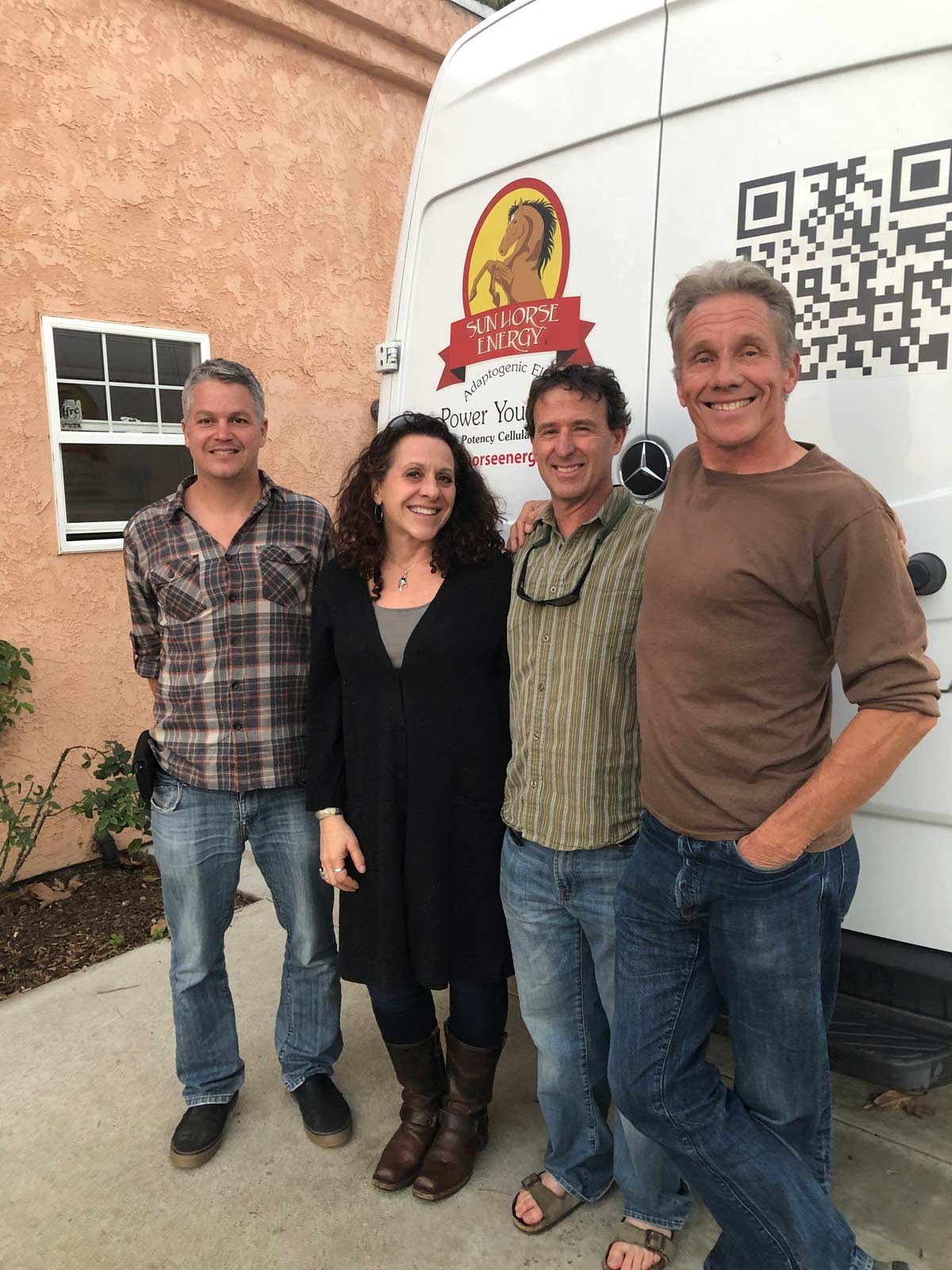
The Promise of Other Adaptogens and Medicinal Plants
We asked Alan about the types of products he’s most excited about, and learned about how products are combining CBD with other adaptogens—herbs which have been used medicinally for thousands of years.
“For the immune system, I love Boulder Hemp products that combine CBD hemp oil with medicinal mushrooms,” he says.
“We also have products that combine CBD hemp with adaptogens. Adaptogens are a class of botanicals that help the body adapt to stress. Every time you reduce stress in the body, you help to charge your immune system. When you combine adaptogens with CBD, it’s a great compliment. Cannadapt from Sun Horse Energy has several great CBD hemp adaptogenic formulas, including one with Kava Kava. They also just released a new product called Lung Support. It is a combination of adaptogens with immune and lung support botanicals.”
“Also, Quicksilver Scientific has their CBD Synergies line which combines a lot of their existing nutraceuticals and botanicals.”
The Need for CBD Education Continues to Grow
Despite growing acceptance of CBD hemp products, there’s still a lot of misinformation out there. Every day, we get questions on the Leaf411 hotline that reinforce the need for balanced, scientifically-based education on both CBD hemp and marijuana products sold in legal dispensaries.
On the CBD hemp front, CBD Garage provides robust education on CBD and the endocannabinoid system to the public. This includes an education section on the website and phone and chat support available to both customers and to people who have CBD questions but haven’t bought products from the website. They also partner with Leaf411 to provide guidance and answers to customers’ specific medical questions.
“Every product is a little bit different,” Alan says. “Depending on who manufactures the product, if they’re getting their cannabis from the same source or growing it themselves, everybody grows their plants differently. Everyone has a different genetic mix of the different hemp plants. Companies have different extraction techniques, whether it’s liquid infusion or alcohol extraction or CO2 extraction. These factors create different profiles for products.”
As a result, a product may not work for everyone the same way. You may need to try different products before finding what works best for you.
Education around different types of CBD hemp products and finding the best dose are also areas where Alan sees a need.
“There’s no magical dose. There are general protocols that we use, but everybody’s a little bit different. ‘Do I take CBD three times a day? Do I take CBD at night? Do I like a broad spectrum without THC? Am I better off with the THC in a full spectrum product?’”
“I suggest to people to keep track of what you’re using. Start with some guidelines and then work from there. When you’re starting out, you have to be patient.”
Alan explains that while some people experience positive effects on their first day of using CBD hemp, it may take longer for others.
“I had an uncle who tried CBD on a daily basis. He told me that he didn’t feel anything for two weeks and all of a sudden—bam—it kicked in. He was on the treadmill walking and didn’t even notice he passed the point where he couldn’t previously walk because his legs hurt.”
“Your benefit after a month is going to be different than your benefit after three months or after a year, because your body changes.”
Partnering with Leaf411 to Provide Medically-Sound Education
Alan recognizes that the voice of trained medical professionals is also invaluable, which led him to partner with Leaf411 as a supporting member.
“I’m not a licensed medical professional, nor are a lot of people selling CBD hemp oil. We can help people through general use of CBD as an adult, but specific medical questions are outside our scope of practice. Leaf411 provides licensed medical professionals who can answer those really detailed questions,” he says.
“For anyone under 21 or 18 who is considering using CBD, they should talk to a medical professional first, because children are much different than adults. If somebody is calling for their child, I always encourage them to talk to Leaf411. You need a licensed healthcare practitioner to talk to who has the experience and education to understand what’s going on (with your child).”
CBD Garage offers a list of resources including the free Leaf411 hotline as well as private practitioners who provide cannabis consultations for a fee.

How CBD Garage is Keeping Customers Safe During the COVID-19
Many of us are under stay-at-home orders. As a result, online ordering has surged in certain categories, including groceries, medicine and supplements.
But how do you know if the companies you’re ordering from are using safe handling practices?
The World Health Organization (WHO) states that, “The likelihood of an infected person contaminating commercial goods is low and the risk of catching the virus that causes COVID-19 from a package that has been moved, travelled, and exposed to different conditions and temperature is also low.”
Even with that reassurance, many online businesses are taking extra disinfection steps. We asked Alan what extra precautions CBD Garage is taking to reduce risk of infection.
“At CBD Garage, we’ve always kept a clean environment. We’re doing more disinfecting of all the surfaces, the mouse, the keyboard and the tables now. Also, we’ve begun wearing gloves while packing orders—that’s new.”
“One thing great about us is we don’t use a fulfillment center. We pack every order ourselves. You don’t have to worry about who’s packing your items. We have the same people processing orders every day, following the same protocols. It’s a very controlled environment.”
You can learn more about the precautions that CBD Garage is taking at this link.
Extending CBD Hemp Discounts to All CBD Garage Customers
When we talked to Alan, he recognized that many people are facing financial difficulties that could lead to tough decisions around medications and wellness products, including CBD hemp.
“We understand that people are going through some serious financial hardships these days,” he says.
In response, he opened up the paid membership-based Buyer’s Club so that it’s now available as a free benefit for all customers, with no joining fees, monthly fees or renewal charges. Buyer’s Club members get a 25% discount on everything in the CBD Garage store.
Buyer’s Club members also receive 25% off supplements sold on the Fullscript and Wellevate online stores, if you link to those sellers through the CBD Garage links (more info in the “Support” section here).
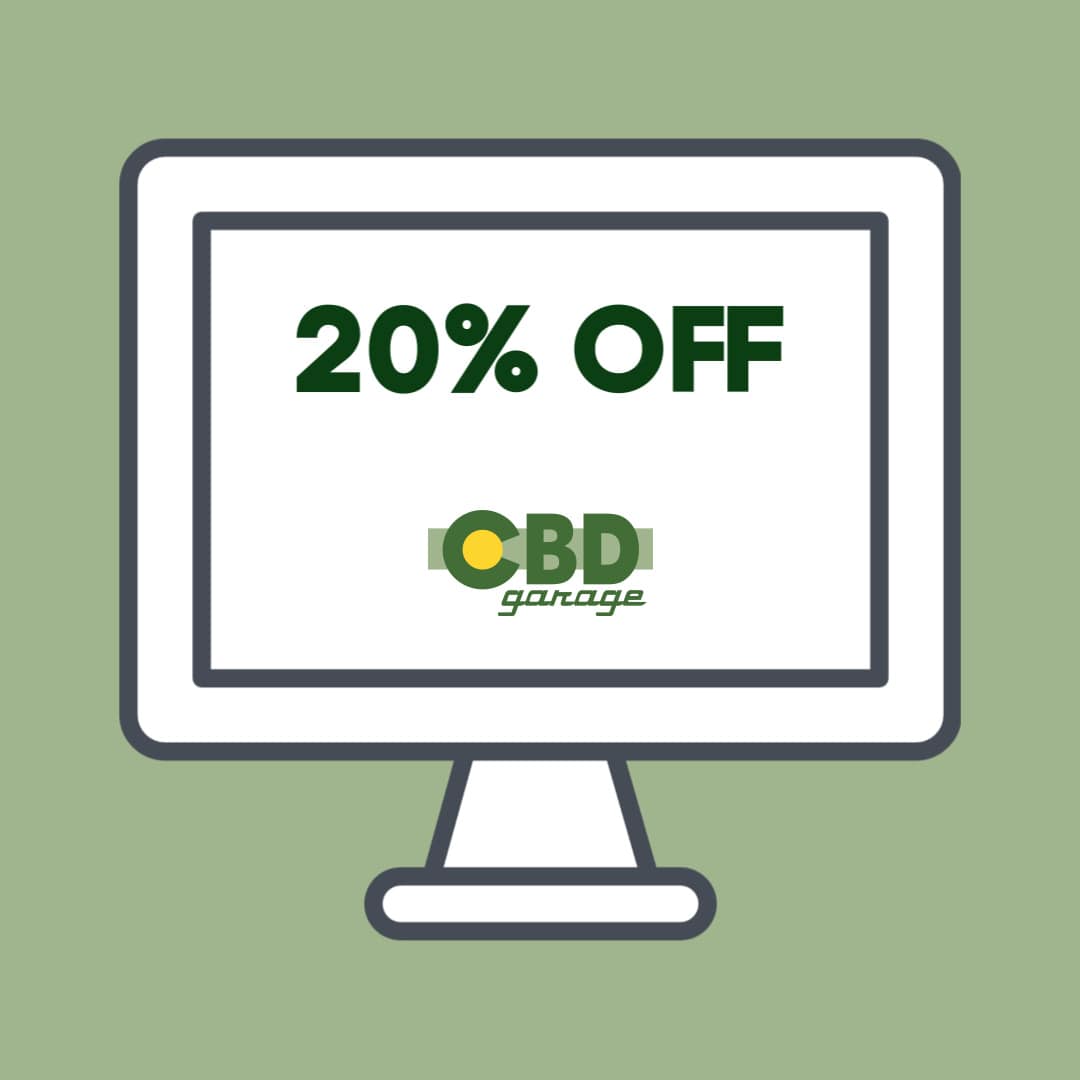
Leaf411 Can Help With Your Questions
At Leaf411, we’re thrilled to have members like CBD Garage who share our ethos of professionalism, kindness, and commitment to CBD hemp consumers.
While CBD Garage offers education on CBD hemp products, we know not all businesses are able to do that right now.
In some cases, businesses are closed. In other cases, they may be working under very restrictive conditions that limit interaction with customers, meaning that questions don’t get answered.
Leaf411 can help! Whether you have questions about CBD hemp products, legal marijuana sold at dispensaries, or even about COVID-19, our fully-licensed registered nurses (RNs) have the education and experience to provide balanced information and guidance. Call us for free at 844-LEAF411 (844-532-3411).
The Leaf411 cannabis nurse hotline provides free, anonymous education and directional support to the general public about the safe use of legal cannabis. We partner with select business members who meet our rigorous standards to extend our education and outreach efforts.
Standing in Solidarity With Nurses and Other Frontline Workers
How Leaf411 is Helping With the COVID-19 Response
Medically reviewed by Katherine Golden, RN
Written by Denise Rustning
Back in early January, we planned the month of March to highlight nurses—especially cannabis nurses—on our blog. The World Health Organization (WHO) designated 2020 as the year of the nurse, and we were eager to highlight the incredible work being done by our Leaf nurses as well as other nurses working in the cannabis space.
Little did we know that an emerging novel virus, COVID-19, was poised to rapidly spread across the world, touching every aspect of life.
Now, many of us are doing our part to “flatten the curve” by staying at home and limiting close contact with anyone outside of our immediate household. For our Leaf nurses on the hotline, that means working from home.
Not everyone has the option to work remotely, however.
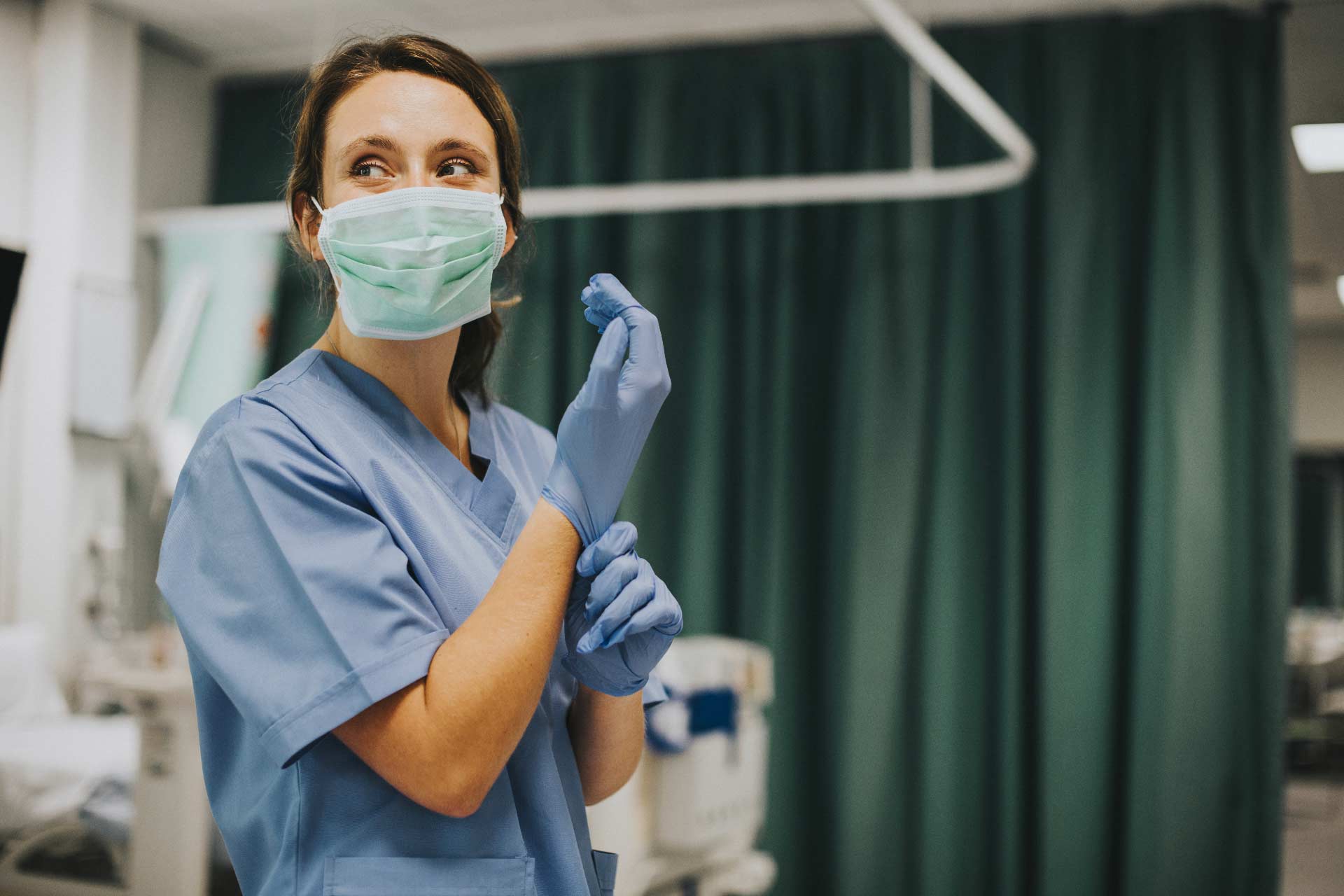
Acknowledging the Work of Nurses and Healthcare Professionals
Today, we’re acknowledging the healthcare professionals, including nurses, who are already on the front lines providing care to COVID-19 patients, often in stressful environments with limited resources. Many other nurses stand ready, waiting in the wings to help as COVID-19 hospitalizations rise.
One of the best ways you can help healthcare workers is by doing your part to flatten the curve. Limit your exposure to other people, even if you feel well.
You can also check out this link for other ideas on supporting nurses who are working long hours on the front lines.
How Leaf411 Hotline Nurses Are Helping to Increase Capacity
Our Leaf nurses are helping to take pressure off the hospitals and primary care clinics by opening up our free Leaf411 hotline (1-844-LEAF411) to your COVID-19 questions. Our nurses’ backgrounds extend far beyond cannabis nursing, with clinical and hospital experience.
We cannot provide diagnoses or order tests—that falls outside of our scope of practice as RNs. However, we can point you to the best resources based on your specific concerns and needs. We’re also able to answer general questions about COVID-19 and provide context for the emerging research and recommendations.
Check out our Leaf library as well for resources like general guidelines for reducing risk of infection as well as Dr. Dave’s input on cannabis and coronavirus.
Of course, we’re still available to answer your cannabis questions, too. With dispensaries switching to online ordering and curbside pickup, consumers will no longer be able to chat with budtenders about different cannabis products.
For example, if you’re switching from smokable cannabis to edibles or tinctures, we can provide guidance to help make that transition as successful as possible.
Recognizing All the Frontline Workers Providing Essential Services
We also want to recognize other non-healthcare frontline workers who keep essential services up and running. This includes employees at grocery stores, distribution centers, gas stations and restaurants, as well as delivery drivers and truck drivers.
States and cities are designating marijuana dispensaries as “essential” as well, recognizing that many people rely on cannabis medicine to manage health conditions like pain, nausea and PTSD. While we’re thrilled about this designation, we also know it means that dispensary employees take on increased risk to maintain our access to safe, legally-compliant cannabis. To help out dispensaries, Leaf411 developed Preparedness Plans which we’re sharing with both member and non-member dispensaries through the end of the month.
We’re Ready to Help With Your Questions
Our Leaf nurses are available to answer your questions, whether you’re a clinician, dispensary representative or member of the public. Call us for FREE at 844-LEAF411 (844-532-3411).
The Leaf411 cannabis nurse hotline provides free, anonymous education and directional support to the general public about the safe use of legal cannabis. We partner with select business members who meet our rigorous standards to extend our education and outreach efforts.
The State of Cannabis Nursing
Medically reviewed by Katherine Golden, RN
Written by Denise Rustning
We often remind you that Leaf411 hotline is staffed by cannabis-trained nurses.
But what exactly does “cannabis-trained nurse” mean? A lot of people have no idea that cannabis nurses even exist!
As part of our series on nurses this month, we’re sharing the state of cannabis nursing in the U.S. Whether you’re a patient or a registered nurse (RN) interested in pursuing cannabis training, you’re sure to learn something new.
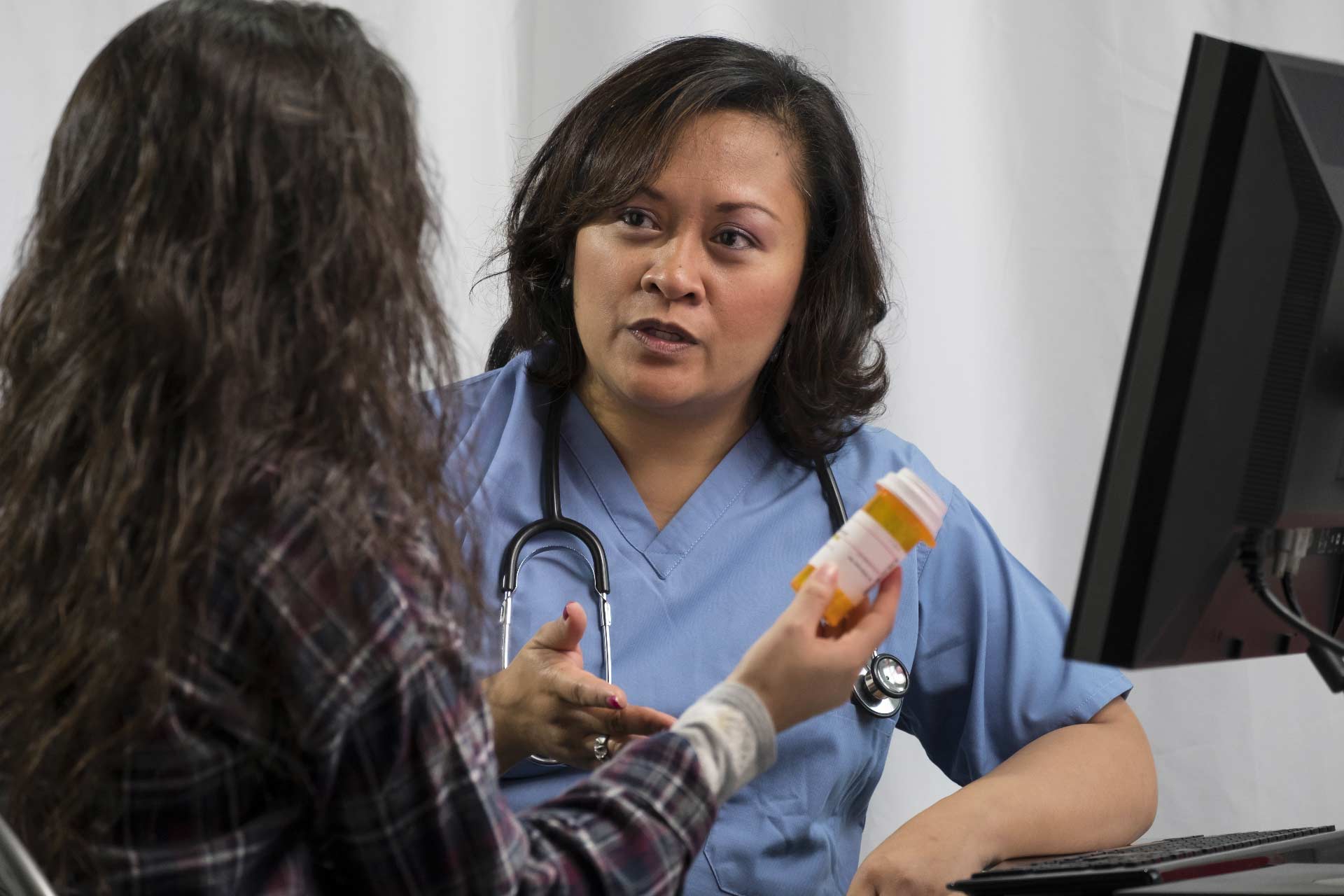
How Cannabis Nurses Help Patients
You’ve likely had a nurse help you with medication-related questions before. Now imagine if a nurse could provide the same type of guidance on using cannabis to manage health conditions.
In fact, cannabis nursing is a thing!
Cannabis nurses complete specialized education on the human endocannabinoid system and cannabis as medicine.
They use this knowledge along with their years of clinical experience to help guide your decisions around using marijuana (cannabis containing >0.3% THC, which is sold legally in dispensaries), or cannabidiol (CBD) hemp products that are federally legal and sold in retail stores and online.
Cannabis nurses can help you save money and time by suggesting general types of products that may work best for your health concern. For example, if you’re dealing with inflammation pain, a cannabis nurse might suggest a specific CBD:THC ratio based on clinical guidelines and evidence.

Where can you find a cannabis-trained nurse? The free Leaf411 hotline is a great place to start!
You can speak to a cannabis-trained RN at no cost via our hotline: 844-LEAF411 (844-532-3411).
The Bigger Picture: Cannabis and The American Nurses Association
The American Nurses Association (ANA) is the largest nursing association in the United States, with over 4 million nurse members. They’ve supported the need for research and evidence-based use of cannabis since 1996!
In their latest position statement (2016), the ANA advocates for reclassification of cannabis so it’s no longer considered a Schedule I controlled substance by the federal government. This change would make clinical research on cannabis’s medicinal benefits much easier.
The ANA also supports development of dosing/recommendation standards, along with legal protections for both patients who use cannabis therapeutically and for the clinicians who discuss or recommend cannabis.
Not all nurses are up-to-date on the potential therapeutic value of cannabis. However, many nurses are hearing more each day from patients who have benefited from using cannabis to manage health conditions. As awareness grows, interest grows as well.
The American Cannabis Nurses Association
The American Cannabis Nurses Association (ACNA) is a national organization dedicated to expanding the knowledge base of endo-cannabinoid therapeutics among nurses. It was formed in 2006 by several nurses who were involved in the Patients Out of Time Fourth National Clinical Conference on Cannabis Therapeutics. These dedicated nurses saw the need for an organization to bring nurses together in a collegial and informational capacity to discuss the growing use of cannabis in medicine.
The ACNA’s ultimate goal is to develop specialty recognition for cannabis nursing, in the same way that other nursing specialties are recognized by the American Nurses Credentialing Center (ANCC), which is a division of the American Nurses Association (ANA).
To date there are over 1,300 nurse members who proudly follow the ACNA’s scope and standards of practice of the emerging role of the cannabis nurse in the United States. The standards of any specialty area of nursing are built upon the foundation of standards of practice expected of all registered nurses (Mariano, 2015) and cannabis nursing is no exception to this rule.
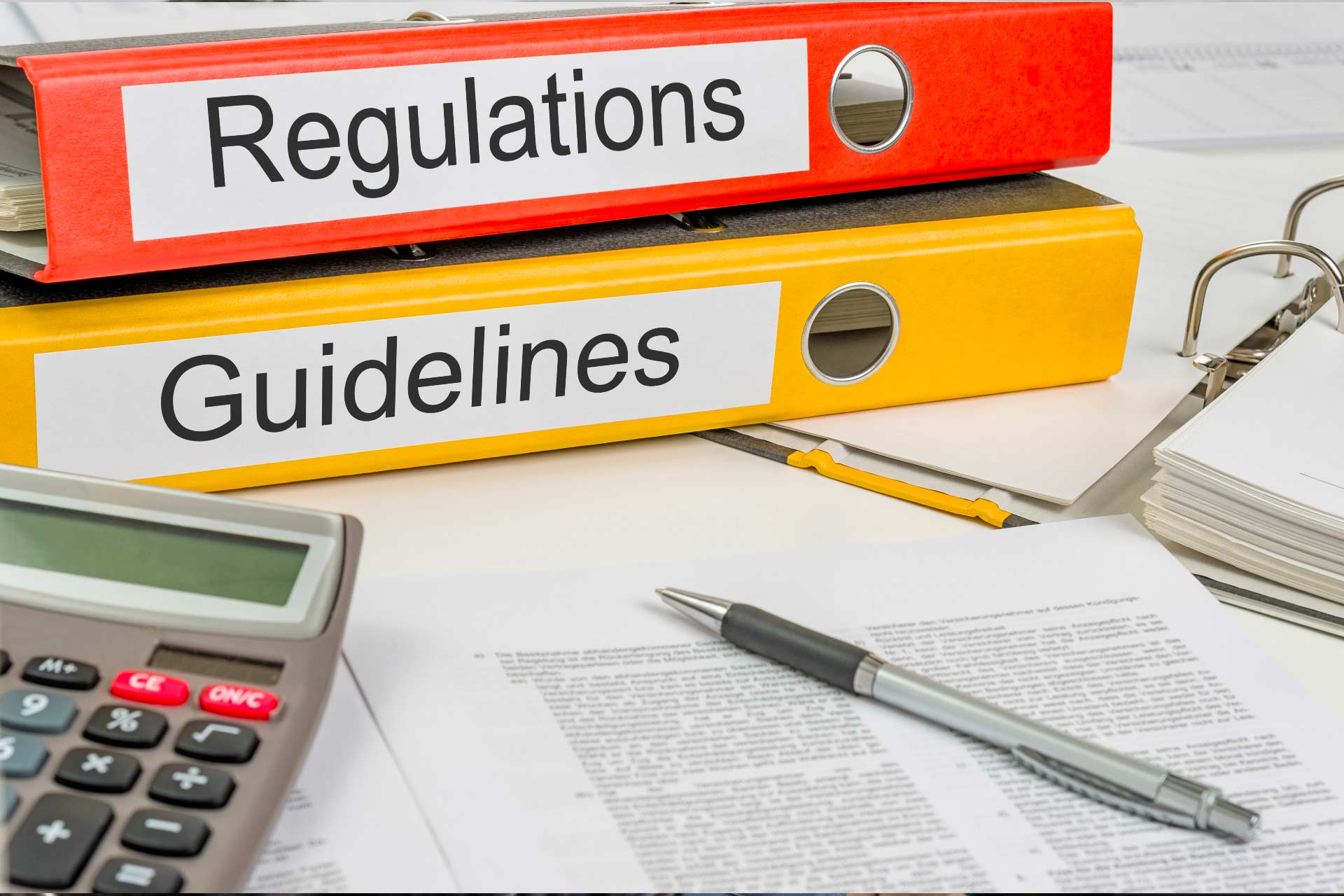
Creating Nursing Guidelines for Medical Marijuana
Professional organizations are also developing guidelines for nurses to use when suggesting CBD hemp or medical marijuana as a treatment option. This work is being undertaken by the National Council of State Boards of Nursing (NCSBN) which developed the National Nursing Guidelines for Medical Marijuana.
The NCSBN guidelines set six principles of essential knowledge for cannabis nurses:
- Working knowledge of the current state of legalization of medical and recreational cannabis use.
- Working knowledge of the jurisdiction’s (state/local) medical marijuana laws and regulations.
- Understanding of the endocannabinoid system and how cannabinoids (THC, CBD and others) interact with the endocannabinoid system receptors.
- Understanding of cannabis pharmacology and the research associated with the medical use of cannabis.
- Capacity to identify safety considerations for patient use of cannabis.
- Ability to approach patients without judgment regarding their choice of treatment or preferences in managing pain or other health symptoms.
We share these guidelines so that you can see how cannabis nursing is actually a serious endeavor, going far beyond the typical budtender or non-clinician’s knowledge!
It makes sense for professional organizations like the NCSBN to develop guidelines for medical marijuana, because several pharmaceutical marijuana products are already on the market, such as cannabidiol-based Epidiolex, as well as several synthetic marijuana drugs designed to reduce nausea, including Marinol and Syndros.
But all cannabis products, synthetic or full-plant, are not created equal, so nurses need to be familiar with the benefits and shortcomings of both.
In addition, clinicians are aware that many of their patients use cannabis either recreationally or for therapeutic purposes. While cannabis has fewer side effects than many pharmaceuticals, there are precautions that patients should be aware of, especially around potential medication interactions.
So how do nurses and other clinicians gain medically-sound knowledge about cannabis?

The Need for Cannabis Education is Growing
As cannabis legalization expands across states, there’s increasing demand for education designed for growers, manufacturers, dispensary workers and medical professionals.
The Medical Cannabis Institute (TMCI) partnered with the ACNA to create the “Medical Cannabis Curriculum for Nurses” which addresses the National Nursing Guidelines for Medical Marijuana. All our Leaf411 hotline nurses have completed the TMCI program.
In addition to our nurses being members of ACNA and having completed TMCI training, Leaf411 has partnered with Radicle Health for additional education. All Leaf411 nurses have completed Radicle Health’s “Cannabis Therapeutics for Nurses/Medical Professionals” course.
Radicle Health and TMCI are helping to lead the way for clinicians to integrate knowledge of the endocannabinoid system and cannabis into their practice. As more nurses and doctors become aware of the professional resources that exist, we anticipate that demand for cannabis clinician training will continue to grow.
Leaf411’s Perspective on the Future of Cannabis Nursing
The nursing profession holds that health is a universal right, which includes access to health care and education concerning the prevention of health issues. In the words of the American Nurses Association, “It is the shared responsibility of professional nursing organizations to speak for nurses collectively in shaping health care and to promulgate change for the improvement of health and health care” (ANA, 2015).
At Leaf411, we believe cannabis nursing is a viable, emerging specialty. With the ongoing support of national organizations like the ANA and ACNA, we can move forward confidently caring for our public as we do in any other specialty.
Interested in becoming a cannabis nurse? We offer tips and resources at this link.
Get Help With Your Cannabis Questions
Our Leaf nurses combine nursing expertise with specialized knowledge of the medicinal benefits of cannabis, providing balanced, research-based information and support. Call us for FREE at 844-LEAF411 (844-532-3411).
The Leaf411 cannabis nurse hotline provides free, anonymous education and directional support to the general public about the safe use of legal cannabis. We partner with select business members who meet our rigorous standards to extend our education and outreach efforts.
Recognizing Leaf411 Nurses During the Year of the Nurse
Medically reviewed by Katherine Golden, RN
Written by Denise Rustning
Have you ever wondered who answers the calls to the Leaf411 hotline?
We’re proud to say that all our hotline calls are answered by fully-licensed registered nurses (RNs) who’ve completed specialized cannabis clinician training. Our nurses are also members of American Cannabis Nurses Association (ACNA).
This month, as part of the Year of the Nurse, we’re focusing on the pioneering nurses working in the cannabis space, including the nurses who answer your calls to the hotline!
Keep reading to hear directly from our nurses and learn more about the ways they can help with your questions.
2020 Is the Year of the Nurse and Midwife
Early in 2019, the World Health Organization (WHO) announced that 2020 would be the Year of the Nurse and Midwife.
In recognition of the Year of the Nurse, we chose the month of March to put a spotlight on the profession that touches the public everyday though our hotline and outreach programs.
Who Do You Trust with Your Health Questions?
For the past 18 years, nurses have topped the list of most trusted professionals in the United States, according to an annual Gallup poll. Nurses’ honesty and high ethical standards are the reasons for those continued high rankings.
We also think that our ability to listen (bedside manner) and how we work together with patients, their loved ones and their entire clinical care team is another reason nurses are held in high regard.
Nervous About Your Cannabis Questions? Here’s What Our Nurses Wish You Knew
We recently asked two of our Leaf nurses to share their perspectives on Leaf411’s hotline and community education events. Note: We’re using anonymized initials for both nurses.*
“We are non-judgmental. We’re here to help and give you as much accurate information as possible.” explains R.W., one of the hotline nurses. “We interpret for doctors every day. We can interpret (the medical cannabis research) for you, too.”
D.J., another of our hotline nurses, adds, “I would invite anyone to look around our website if they don’t feel comfortable speaking with one of us just yet.”
Leaf411 offers several online resources, including our Leaf Library, Member Directory and our blog. We also offer an online chat function that can translate just about any language during our hotline hours, from Tuesday-Saturday 10:00 am-8:00 pm MST. You can find the chat button on the Leaf411.org homepage.

How a Cannabis Nurse’s Advice is Different than a Budtender’s Advice
You may be wondering how a call to the Leaf411 hotline is different from simply researching your question online or asking a budtender for advice on a health issue.
While budtenders have expertise in the products their dispensary carries, they are not clinical providers. In fact, the law prevents budtenders from providing specific medical recommendations to dispensary customers.
On the other hand, our cannabis nurses have the licensing, clinical background and training to provide individualized medical guidance. However, while our nurses understand the science supporting cannabis, they are not experts in the thousands of different products out there on the market.
In other words, our nurses are not here to sell you a specific product or to convince you to try cannabis. Instead, our mission is to provide the education and resources to guide you in making the best choice, based on your health needs and your budget. We are 100% patient and public advocates.

Empowering Patients with Education and Resources Through the Leaf411 Hotline
When someone calls the hotline, “We take things one step at a time,” D.J. explains. “We take time to discuss with the caller what their goals are.”
“For example, if they’re having insomnia, we can discuss a higher THC product which is good for nighttime,” she says. “If they’re having issues with pain throughout the day, we can talk about starting off with a non-intoxicating CBD product in the morning that contains little or no THC.”
“By taking it one step at a time, we can make it not so overwhelming. That way, the caller can go into a dispensary with more confidence,” she says.
“It’s really about empowering the consumer to be able to walk in (a store or dispensary) and know, ‘Here’s what I’m looking for. Here’s what I don’t want, and here’s what I do want,’” D.J. says.
By knowing your goals and understanding which types of products might help most, you can be more confident shopping for marijuana and CBD hemp products, quickly finding something that will be successful for your specific needs.
Our Nurses Are Passionate About Providing Medically-Sound Cannabis Information
R.W. already had over a decade’s worth of experience as an RN when she began studying cannabis’s therapeutic benefits. Like many clinicians, she was motivated to look at the research after seeing family members, friends and patients struggle with pain and treatment-related nausea.
Through her help at Leaf411 community-based events, R.W. sees the value of the work she does.
“I get to see how valuable this service is, and how badly it’s needed. People are able to call and get information (about cannabis) for free. That’s phenomenal!” R.W. says.
She notes that some cannabis clinicians charge upwards of $300 per hour for the same level of service that Leaf411 provides to the public for free.
“Knowing how many people are interested (in cannabis) and experimenting on their own, we can’t leave it to Joe Blow to answer their questions. As wonderful as cannabis is, there are interactions with certain medications and important considerations people need to be aware of. There needs to be someone who can speak to those things,” R.W. says.
As a clinician herself, R.W. knows that many general practitioners are unaware of the research and guidelines supporting medicinal use of cannabis, since it’s not being taught in medical school or traditional nursing programs.
“Unfortunately, you can’t get information from your family doctor because they’re either uneducated (on cannabis) or scared of the ramifications,” she says.
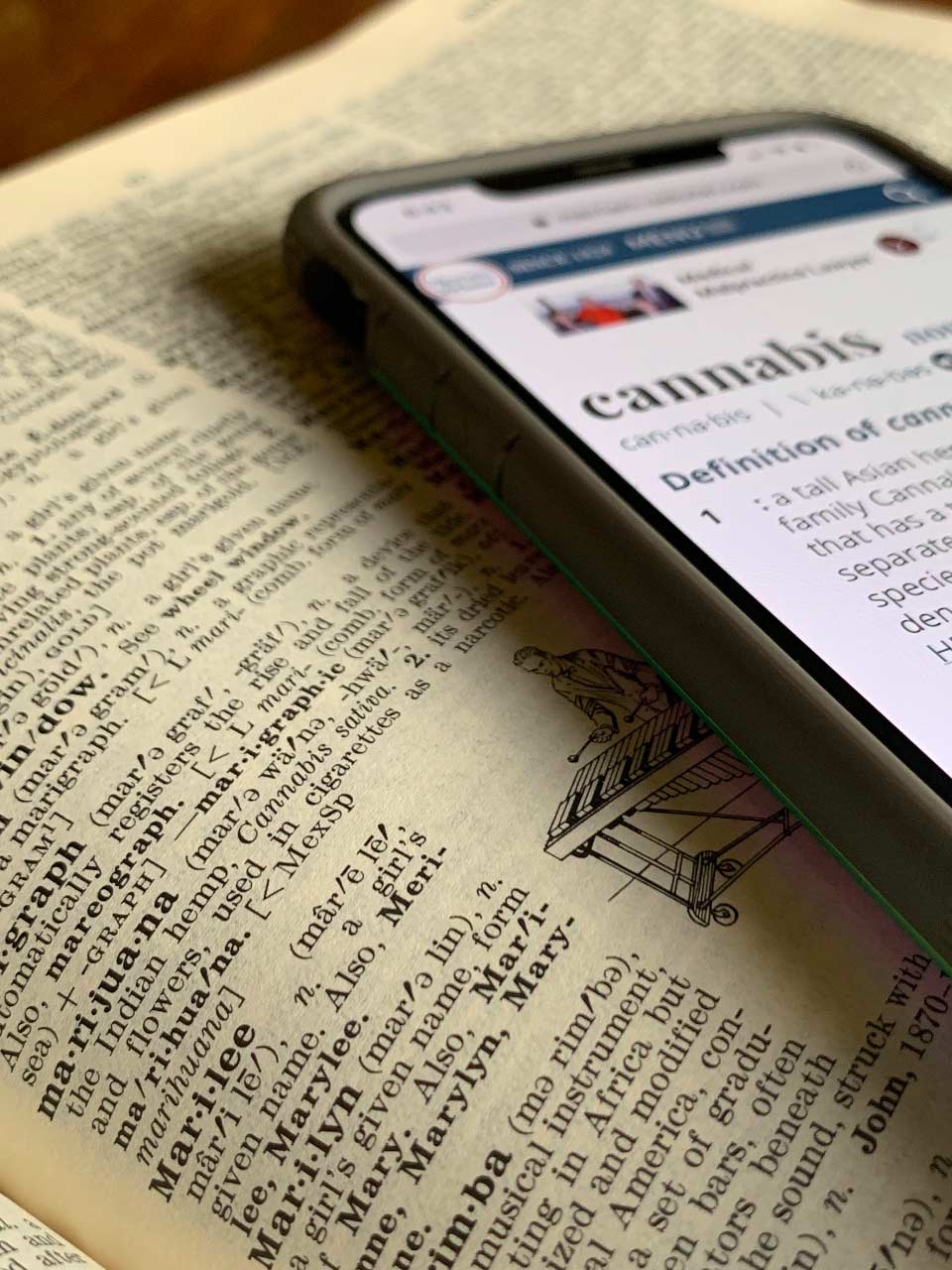
Addressing the Knowledge Gap Around Cannabis
D.J., another of our other Leaf nurses, came to cannabis nursing after first working in cannabis cultivation. As she learned more about the therapeutic benefits of the plant, she gravitated toward the medical field.
“I knew the possibility existed that there was going to be a gap in the public’s knowledge, the medical profession’s knowledge as well as how quickly the industry was moving forward and someone would eventually need to fill in the gaps,” D.J. says.
This need motivated D.J. to return to school to earn a Bachelor in Nursing (BSN) degree, as well as pursue cannabis nurse education.
“I have put a lot of heart and soul into developing myself as a cannabis nurse,” says D.J. “As a nurse, I can see both the anecdotal evidence (hearing from individual patients), and the empirical evidence. I can help explain what that empirical evidence means to patients.”
Serving the Needs of All the Public: Patients and Clinicians
Four years ago, our co-founder, Katherine Golden, RN, began looking into cannabis as a treatment option when helping a family member who was fighting cancer.
“Once I started looking through all the science I could find, through the most reputable resources, I was angry, angry that more wasn’t done to shout this information from the rooftop for all of us medical professionals to take a deeper look at,” Katherine says.
In fact, that moment was the beginning of a journey to provide evidence-based, medically sound information to not only her own family, but also to the general public and to other clinicians.
“We’ve had calls from social workers and other nurses battling medical conditions and seeking plant education themselves, to nutritionists, acupuncturists, physical therapists, and MDs thanking us for providing this type of resource for them to ask us questions that they can then relay the answers back to their patients or clients or send them to us directly,” Katherine says. “When you open your arms and knowledge to allow other colleagues in, you in turn lessen the burden each one of us carries to bed at night.”
When You Call the Leaf411 Hotline, You’ll Get a Cannabis-Trained RN
From the first day, we knew that we wanted the Leaf411 hotline calls to be answered by licensed medical professionals. Registered nurses were the perfect fit.
By staffing our hotline with RNs who have completed additional cannabis education through Radicle Health and The Medical Cannabis Institute, we make sure that you receive consistent, medically-sound guidance based on research. Our nurses use a medical framework for understanding your health concerns and goals and providing guidance.
Whether you are a patient or clinician, we are here to help! Call us at 844-LEAF411 (844-532-3411) or use the chat function on our home page.
*You may be wondering why we use anonymized initials instead of our nurses’ real names in this post.
Here’s why: There can be employment or licensing consequences for nurses and doctors who work in the cannabis space, even though their recommendations are in line with the research and comply with state laws. This will only change once federal laws are updated in line with the growing evidence showing the medicinal benefits of cannabis.
The Leaf411 cannabis nurse hotline provides free, anonymous education and directional support to the general public about the safe use of legal cannabis. We partner with select business members who meet our rigorous standards to extend our education and outreach efforts.
Addressing Cannabis Stigma on the Leaf411 Nurse Hotline
Medically reviewed by Katherine Golden, RN
Written by Denise Rustning
The cannabis sativa plant has been used as medicine for over 1,500 years, according to historic records.
That can be hard to imagine sometimes, after nearly 100 years of cannabis prohibition in the United States.
Chances are good that you grew up hearing messages about the dangers of marijuana, complete with scary stories of addiction, irresponsible behavior, and negative health impacts.
Where did these messages come from? It’s a long story that we’ll be covering in a future blog, but the takeaway is that many of these negative stories and stereotypes were driven by politics and money, not by research.
Now, research is showing that much of the old propaganda simply isn’t true.

With legalization expanding at the state level, many people across all walks of life are going public with their use, showing that cannabis can be used responsibly for therapeutic or recreational purposes.
The cannabis plant contains many different cannabinoids, including tetrahydrocannabinol (THC) and cannabidiol (CBD). When we talk about cannabis, we’re really talking about two categories of products:
- CBD hemp products are now legal under federal law and almost all state laws (Idaho, Nebraska and South Dakota are the exception). CBD hemp comes from hemp plants—cannabis plants bred and grown to contain very little to no THC. Under federal law, CBD hemp products are limited to less than 0.3% THC.
- THC is the cannabinoid responsible for the “high” that people feel when using cannabis. Products containing over 0.3% THC are legally sold in dispensaries in states that have voted for legal recreational or medical marijuana.
Despite growing acceptance, many people run headfirst into misconceptions and stigma when considering whether to try cannabis themselves.

Tackling the Stigma: Cannabis Will Not Destroy Your Brain
Our hotline callers are often concerned about whether cannabis will kill brain cells. When we recently talked to Dave Gordon, MD, one of our Leaf411 Advisory Board members, he shared similar stories of patients who worried that cannabis would hurt their brains. Dr. Dave explained that in response, he shares the research showing that in fact, cannabis won’t harm the adult brain, and may even be protective against certain neurological disorders like Alzheimer’s and dementia.
Likewise, our hotline nurses always go to the research when answering specific questions about how cannabis may impact brain health. Peer-reviewed studies can be hard to decipher if you don’t have a medical background and clinical training. One reason we created the FREE Leaf411 cannabis hotline is to help bridge the gap between cannabis research and the public.

The Fear of Getting Too High from Cannabis
When people first call the hotline, they often express concerns that using any amount of THC at all, even the very small amount in CBD hemp products, will make them too high.
THC is not like a simple on-off light switch, though.
Instead, you can think of it like a gas pedal in a car, where more gas equals greater speed. The amount of THC you use will impact how much of the “high” you feel—or whether you feel those intoxicating effects at all.
For example, the amount of THC in a full spectrum hemp product is not enough for you to feel it—but it is enough to contribute to the entourage effect when the different plant compounds work together to provide enhanced therapeutic benefits.
Some people are most comfortable starting with CBD hemp products to test the waters and see if it helps their health concern. And CBD hemp is the only legal option for people living in states where recreational and medical marijuana are outlawed.
When you call the hotline, we listen and take your goals and priorities into consideration. We can provide specific guidance to help you minimize the risk of feeling “too high,” while also helping you find a product that is a good match for your needs.

THC: Bogeyman or Powerful Plant Ally?
You may still be skeptical about the power of THC, since that cannabinoid is at the root of the propaganda from the past century.
If full-spectrum CBD hemp products contain all the plant compounds, after all, then why is more THC needed?
It’s true that full spectrum CBD hemp alone provides relief for many people, especially when dealing with inflammation pain.
However, when someone is dealing with chronic neuropathic pain, a higher dose of THC may offer more relief, due to the fact that THC works with the same nervous system receptors that opiates do, without the problematic side effects that come with opiates.
The THC cannabinoid can also help with relaxation and mental release, whether you’re dealing with pain, anxiety or other health concerns. However, it can take some trial and error to find the best product, dose and even CBD:THC ratio for your needs.
At Leaf411, our goal is to empower our callers so that your experiences with cannabis are positive. Our hotline nurses have the training and experience to help guide you in the right direction on your journey.
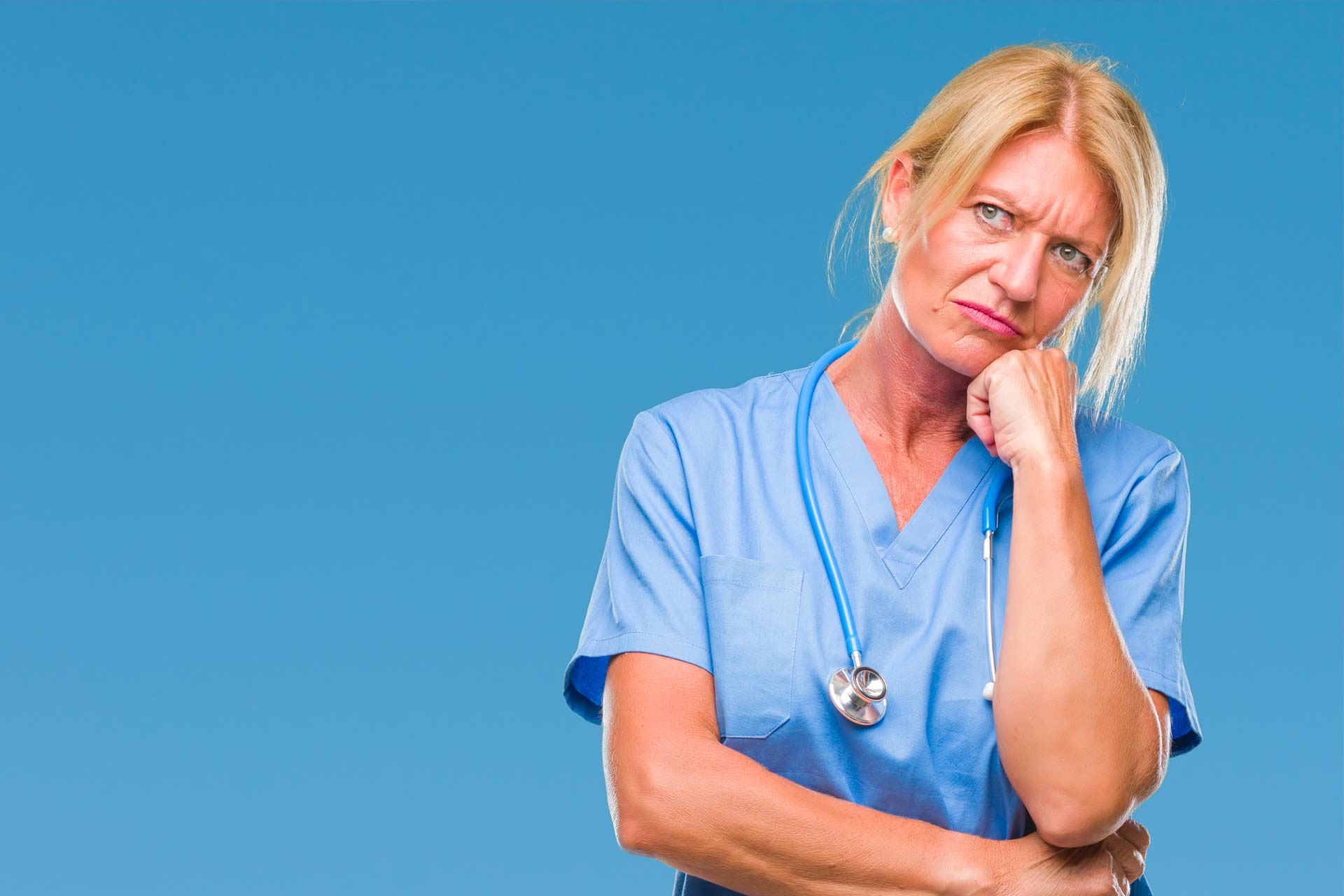
Addressing Cannabis Stigma Among Clinicians
We know that not all doctors, nurses and other clinicians are on the same page when it comes to the potential therapeutic benefits of cannabis.
Keep in mind, clinicians grew up with the same stereotypes and stigmas as the rest of us. Odds are good that when they went to nursing or medical school, they received little to no education on cannabis, either. For example, a study published in 2017 found that only 9% of medical schools included education on prescribing medical marijuana.
As clinicians ourselves, we always suggest that you discuss your cannabis use with your primary care provider. As providers see more patients who are successfully using cannabis to treat different health conditions, their own minds may be changed about the power of plant-based medicine. In our interview with Dr. Dave, he makes some suggestions for how to broach the topic with your primary care provider.
State legalization, as well as federal legalization of CBD hemp, has put cannabis on the radar for many physicians, nurses and other clinicians. When we talk to our colleagues, we hear them saying that they know their patients are turning to CBD hemp and marijuana as an alternative.
However, as long as cannabis remains illegal at the federal level, many clinicians are reluctant to proactively suggest this option to patients, especially when they don’t have specialized education to guide their recommendations. In addition to a lack of knowledge, they face potential professional repercussions from their own employer or licensing bodies.

Pioneers in the Field: Cannabis Doctors and Nurses
Despite the challenges, many doctors and nurses are actively seeking out the research and training to provide medically-sound guidance to patients on cannabis as a treatment option.
They may be like Dr. Dave, who saw the limits of conventional medicine in bringing relief and balance back to patients’ lives. He began digging deep into the research after realizing he needed better tools.
They may also be like our very own CEO, Katherine Golden, RN, a nurse with over 22 years of experience. She turned to the research when helping a family member who had a cancer diagnosis, and found compelling research on cannabis in well-known medical databases like PubMed and ScienceDirect.
In the coming month, we’ll highlight our Leaf411 hotline nurses, as well as the special training they undergo to prepare them for your calls.
The Leaf411 Hotline: A FREE Public Resource for Your Cannabis Questions
Our hotline nurses are ready to answer your questions on our free anonymous hotline. We combine our nursing expertise with specialized knowledge of the medicinal benefits of cannabis, providing balanced, research-based information and support. Call us at 844-LEAF411 (844-532-3411).
The Leaf411 cannabis nurse hotline provides free, anonymous education and directional support to the general public about the safe use of legal cannabis. We partner with select business members who meet our rigorous standards to extend our education and outreach efforts.
Question of the Month: What Are Transdermal Cannabis Patches and Gels?
Medically reviewed by Katherine Golden, RN
Written by Denise Rustning
We often get questions on the Leaf411 hotline about the different types of cannabis products on the market today.
The product people are most surprised to hear about? Transdermal patches or gels containing cannabis plant compounds—either cannabidiol (CBD), tetrahydrocannabinol (THC), or both CBD and THC. Transdermal products may also feature other cannabinoids like CBN or THCa (tetrahydrocannabinolic acid), which is a raw, non-psychoactive form of THC.
Transdermal products can even contain other cannabinoids, terpenes, and compounds that have therapeutic benefits.
How Transdermal Products Work
What makes transdermal patches or gels different than regular topical products you put on your skin like creams or salves?
Normally, the skin acts as a barrier. While creams and salves are absorbed by the outer layers of skin, they do not make it past all the skin layers and into the bloodstream.
However, transdermal products contain specially formulated carrier agents to help medicines, including cannabinoids, to fully penetrate the skin barrier and be absorbed directly into the bloodstream.This route of administration eliminates the need for medicines to first pass through the digestive system or respiratory system (if inhaled). It also allows for more consistent dosing over longer periods of time.
Transdermal patches and gels are not unique to cannabis. In fact, you’ve probably seen transdermal patches used to deliver other medications.
Transdermal routes of administration are used for certain birth control products, smoking cessation and motion sickness. They’re also used to deliver opioids like fentanyl that are prescribed for persistent chronic pain.
Cannabis transdermal patches use the same technology. The middle of the patch contains different cannabinoids like THC, CBD, or CBN. In some cases, terpenes and other therapeutic compounds like menthol or eucalyptus are also added. Manufacturers also add carrier agents, so that the compounds will be more readily absorbed through the skin and into the bloodstream.
The Advantages of Transdermal Cannabis Products
Transdermal cannabis patches and gels are a good option for people who want cannabis’s therapeutic benefits, but have health conditions or other restrictions that prevent them from either inhaling (smoking/vaping) or ingesting edibles or pill-based forms.
Finding an Effective Transdermal Product
Product quality is a big factor when choosing transdermal cannabis products. As we mentioned earlier, simply putting a cream or salve on your skin and letting it soak in does not make it “transdermal.” Many people—and even some budtenders—don’t understand this difference.
Look for products specifically labeled as “transdermal,” and make sure the manufacturer provides Certificates of Analysis (COAs) on their website with test results confirming the amount of THC, CBD and other cannabinoids.
CBD hemp-based transdermal patches and gels are federally legal (containing less than 0.3% THC). They can be found online or in retail outlets in most states.
Transdermal patches and gels containing higher amounts of THC are only legally sold at recreational or medical dispensaries.
How to Use Transdermal CBD Products
Transdermal CBD patches or gels are typically applied on a part of your body that has veins near the skin’s surface, like the inside of your wrist or on your ankle. The time of onset is rapid, sometimes within 20 minutes, and lasts for up to 12 hours. Remember that CBD is not intoxicating, so you won’t feel “high” from a transdermal CBD patch.
In some cases, transdermal patches can be applied elsewhere on the body for localized relief. For example, our supporting member Arcanum makes Sarco Skin, a CBD-infused kinesiology tape. Kinesiology tape is a favorite of athletes, and may help by supporting muscles and joints, while also having a positive impact on pain signals.
How to Use Transdermal THC Products
Transdermal products containing THC work in much the same way as those containing CBD, with relatively quick onset and an extended, consistent dose. Many people report that the intoxicating effects of THC are more subdued when using transdermal products containing THC or a 1:1 CBD:THC ratio.
When considering your dose, take into account that almost all of the cannabinoids contained in the patch are bioavailable. In other words, you don’t lose part of the dose through first-pass metabolism in your digestive system like you do with edibles.
We always suggest starting with one-fourth of the suggested dose or serving size.
Transdermal gel can be dosed in smaller amounts.
For transdermal cannabis patches, products like Mary’s Medicinals transdermal patches can be cut into smaller pieces to provide a lower dose. We suggest you check the manufacturer’s website to make sure the transdermal patch is designed so that it can be cut into smaller portions.
Need Help with Your Cannabis Questions?
The FREE anonymous Leaf411 hotline nurses can help with your questions, whether you’re a recreational cannabis user, patient, or a clinician wanting to learn more about plant-based medicine. Call us at 844-LEAF411 (844-532-3411).
The Leaf411 cannabis nurse hotline provides free, anonymous education and directional support to the general public about the safe use of legal cannabis. We partner with select business members who meet our rigorous standards to extend our education and outreach efforts.
Finding the Best CBD:THC Ratios and Products for Pain
How Different CBD:THC Ratios and Types of Products Can Help with Pain
Medically reviewed by Katherine Golden, RN
Written by Denise Rustning
Last week, we overviewed different types of pain and shared how cannabis might help.
When it comes to treating pain with cannabis, both the type of product and the ratio of cannabinoids matter. The two primary cannabinoids are tetrahydrocannabinol (THC) and cannabidiol (CBD), though the cannabis plant contains many other cannabinoids, terpenes, plus other compounds that contribute to its therapeutic effect.
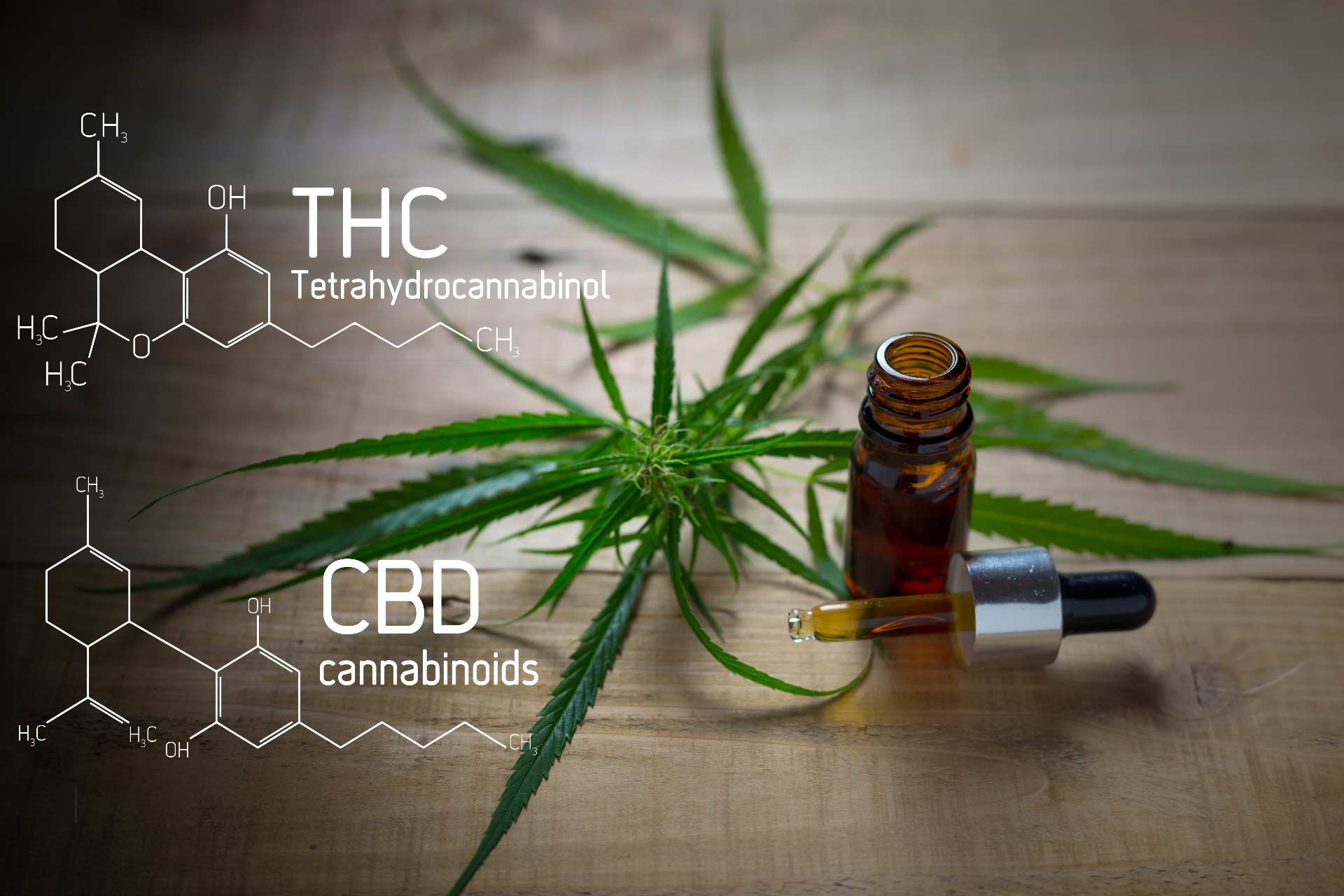
CBD: This cannabinoid is the star player in hemp products which are federally legal. CBD hemp products are required to have below 0.3% THC, which is such a small amount that it’s not intoxicating and won’t get you high. You’ll also find CBD in cannabis products that contain higher levels of THC.
THC: The cannabinoid responsible for the “high,” if used in large enough amounts. Cannabis products containing over 0.3% THC remain illegal at the federal level and can only be legally purchased in states that have legalized recreational or medical marijuana.
Understanding the roles that both CBD and THC play in managing pain can help you find the best product for your needs. If you need a quick refresher on the types of pain that CBD and THC work best on, check out our previous post here.
Timing Your Dose: How Different Cannabis Products Reduce Pain
Whether you’re looking at CBD hemp or cannabis containing higher levels of THC (sold legally in dispensaries), you have several different routes of administration to choose between:
- Inhalation (smoking, vaping): Takes effect immediately and lasts 2-4 hours. This is a great choice for instant relief and for treating breakthrough pain (a flare-up in pain when you’re already taking longer-acting cannabis products). You can also layer inhaled cannabis with a longer-acting method (more on layering below) to help get you through the night.
- Transdermal (patches, gels): Extended release option that takes effect quickly, since the cannabinoids are absorbed directly into your bloodstream. The time of onset is rapid, sometimes within 20 minutes. Transdermal products provide a consistent dose of medicine for up to 12 hours. The transdermal patch or gel is used on an area where the veins are near the skin’s surface—like the inside of your wrist or on your ankle.
- Sublingual (placed under the tongue): Sublingual administration can provide rapid relief, but there are few true oromucosal (sublingual) products on the market. Cannabinoids are fat-soluble and, in their natural state, do not absorb well into the oral mucosa. Moreover, cannabis products are often extracted into oils, and these products are not water-soluble. Patients often expect rapid onset when using tinctures, only to wait 1-3 hours for the dose to take effect. Many products marketed as tinctures will end up being swallowed and absorbed via the digestive system, regardless of how long they are held under the tongue. A true sublingual (a product in which the cannabinoids are formulated to be more water-soluble) absorbs rapidly into the mouth. The effects can be perceived in 15-20 minutes and can last 4-6 hours.
- Edibles (gummies, capsules): Edibles take effect in between 30 minutes and 2 hours. You’ll feel their effects between 5-8 hours. They provide a discreet, portable long-acting option.
- Topicals (creams, salves): Topicals provide short-term localized relief. They can take effect within minutes, and may last for up to an hour.
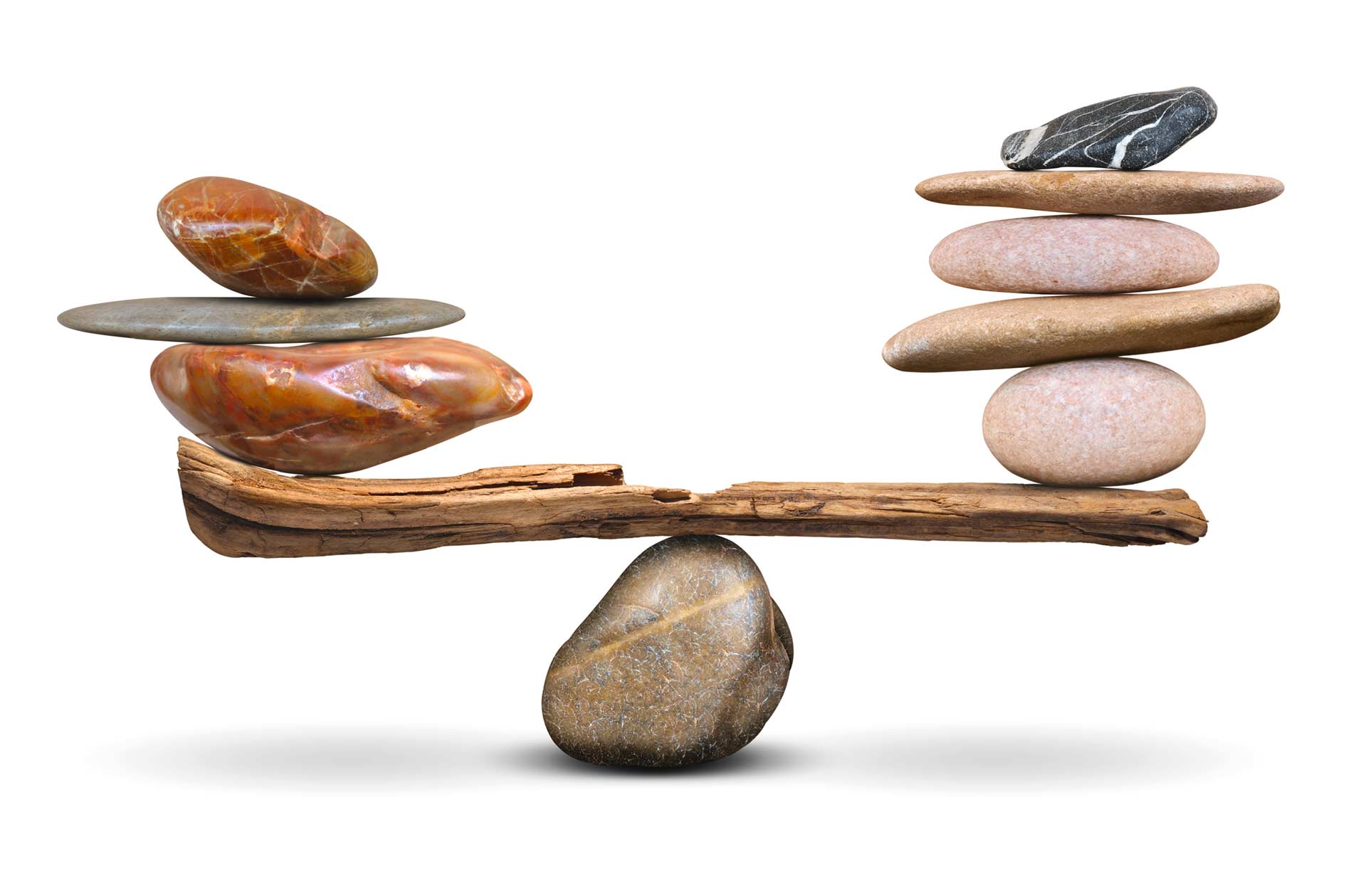
Understanding CBD:THC Ratios
Most marijuana flower sold at legal dispensaries is THC-dominant, with very little CBD. Of course there are exceptions, such as The Wife strain or even some CBD hemp flower strains. However, odds are that if you’re using flower, you won’t find ratios connected to the strain.
Once you start looking at other cannabis products, including vapes, you’ll notice ratios on many—but not all—product labels. Common ratios include 1:1, 5:1, 10:1, and even 20:1. What do these numbers mean? And how do they help with your pain?
The ratio indicates the amount of CBD compared to the amount of THC.
- A 1:1 ratio is when the amount of CBD and THC are the same in each dose.
- On the other hand, if a product has a 5:1 ratio, that means there’s five times as much CBD as THC in each dose.
It’s important to note that the ratio is not the same as the amount of CBD and THC. Our supporting member 1906 makes several different products, including their Midnight drops and Genius drops, that are designed to be swallowed. The ratio of each of these recreational products is 1:1—but the amount of CBD and THC in each is different.
- The 1906 Midnight 1:1 drops have 5 mg of CBD and 5 mg of THC per dose.
- The 1906 Genius drops are also a 1:1 ratio; however, they have 2.5 mg each of CBD and THC.
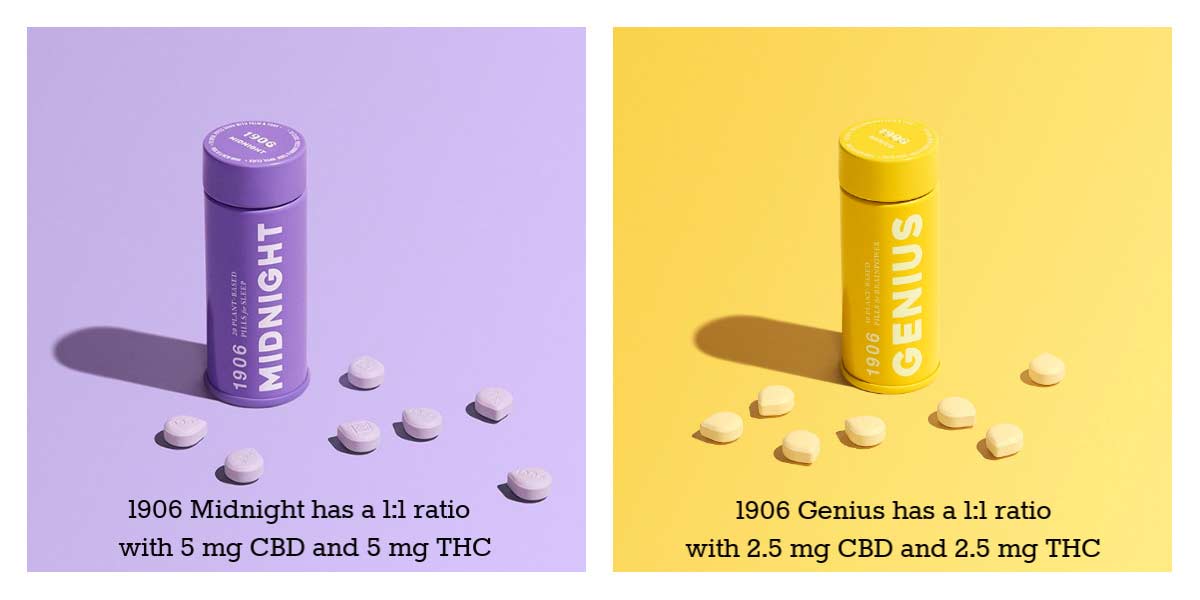
What if a product doesn’t list a ratio? In that case, look closely at the product label. The chances are good that the product either contains all CBD, with little or no THC (legal CBD hemp products fall in this category), or the product contains all THC.
What’s the Best CBD:THC Ratio For Your Pain?
The CBD and THC cannabinoids work individually to target different types of pain. By combining them in different ratios, though, you can achieve different effects to fit your specific needs.
While everyone is different, the following guidelines work for most people:
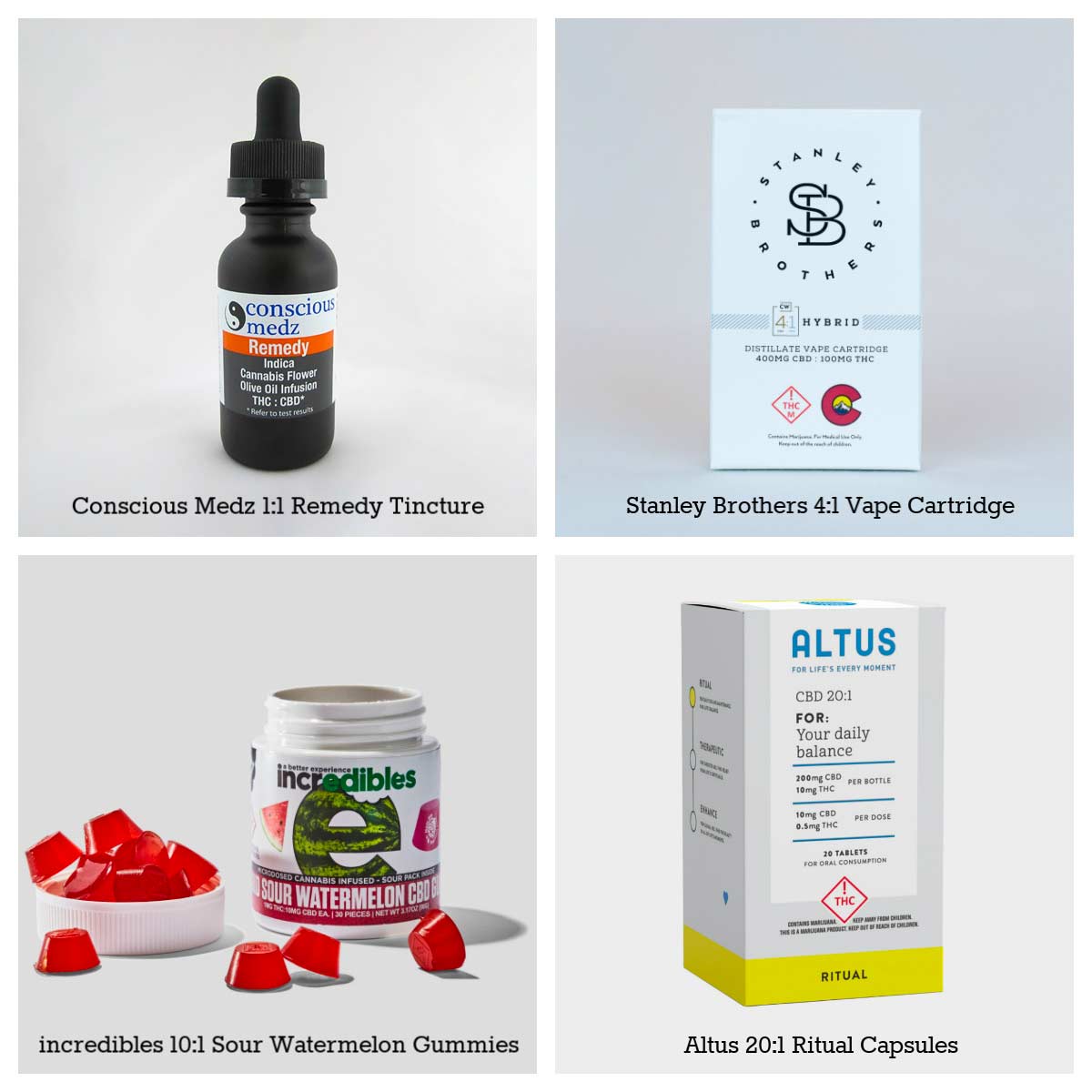
1:1 – Equal amounts of THC and CBD. A good option to try for all kinds of pain, including neuropathic pain. Products with a 1:1 ratio can be uplifting but this ratio will most likely cause impairment if using the suggested serving size. Always start low, go slow, to avoid intoxicating effects.
2:1, 4:1, 5:1 – A balanced product that can provide optimized levels of both CBD and THC for medicinal use, based on the fact that higher doses of CBD are often needed for relief. Can be intoxicating.
10:1 – A high CBD alternative for people who find the 5:1 ratio to be too intoxicating.
20:1 – High CBD levels along with very low THC levels provide a good option for managing inflammation pain. Very rarely intoxicating.
Leaf411’s supporting members offer many different CBD:THC ratios to meet different needs.
Layering Different Cannabis Products
Have you ever woken up in the middle of the night when your pain medication wore off, and suffered as you re-dosed and waited for the medicine to kick in? Fortunately, with CBD and THC products, you can layer different product types to reduce the changes of this happening.
For example, you might use a shorter-acting sublingual pill or vape to bring instant relief, together with an edible or transdermal patch to get you through the night.
If you’re using products containing THC (the cannabinoid that can be intoxicating and make you feel “high”), you’ll want to be careful with your dosing to make sure you don’t get end up with too much THC. The best approach is to start low and slow.
While you cannot overdose on THC, the feeling of being “too high” can be uncomfortable. Our website provides tips for what to do if you feel too high.
Cannabis as an Adjunct Therapy
Depending on how you use cannabis and other medications, there can be possible medication interactions. Our Leaf411 library offers guidance on specific medication interactions here.
We recommend consulting with a clinician before combining cannabis (which includes CBD hemp products!) with pharmaceuticals or over-the-counter pain medications.
Our Leaf411 cannabis-trained registered nurses can help with questions specific to medications you’re taking, and our service is FREE! Call us at 844-LEAF411 (844-532-3411).
We’re Here to Help!
We realize that it can feel overwhelming when researching cannabis for pain. There are so many options—different types of products and different ratios.
Research on cannabis as a safe alternative for treating pain continues to grow. As nurses, we’ve heard and seen firsthand the power of this plant-based medicine, and we stay up-to-date on the latest findings and clinical guidelines for using cannabis for pain.
Our Leaf411 hotline nurses have both specialized training and experience helping people to find the best option for their particular situation. We’d love to share our expertise with you as well! Reach out to us on our free, anonymous hotline at at 844-LEAF411 (844-532-3411).
The Leaf411 cannabis nurse hotline provides free, anonymous education and directional support to the general public about the safe use of legal cannabis. We partner with select business members who meet our rigorous standards to extend our education and outreach efforts.
Leaf411 Supporter Spotlight: Lisa Gee, Director of Marketing and Corporate Social Responsibility, Lightshade
Medically reviewed by Katherine Golden, RN
Written by Denise Rustning
Do you “vote with your dollars?”
In other words, when it comes to cannabis, do you try to support companies that not only create great products but also give back to the community?
Many people come to cannabis seeking an alternative to medicine-as-usual, which depends heavily on pharmaceuticals. In the same way, many cannabis businesses are creating an alternative to business-as-usual by truly embracing socially responsible and sustainable business practices. We believe that Lightshade is one of those businesses.
As part of the education that we provide at Leaf411, we love sharing our supporting member stories, believing that our members represent the best in the industry.
When we share these stories, we help change the outdated misconceptions around cannabis.
As a consumer, you can also help change the story, by supporting cannabis businesses that are committed to sustainability and social responsibility. First, though, it helps to see what a socially responsible, sustainable cannabis business looks like in practice.
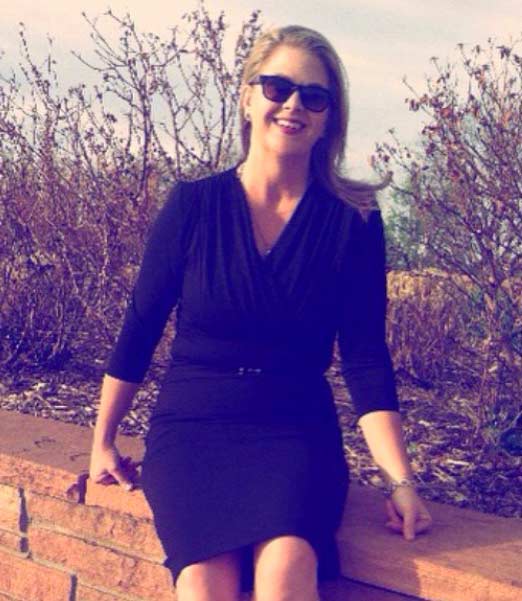
Leaf411 Founding Member Lightshade Dispensary
Our founding member Lightshade is a great example of how a successful business integrates social responsibility, community engagement, and sustainability into their core business model.
Lightshade is a natural partner for Leaf411, given our shared priority to improve awareness and education around safe use of legal cannabis.
We recently sat down with Lightshade’s Director of Marketing and Corporate Social Responsibility, Lisa Gee, to learn more about the dispensary’s work in the community and their commitment to customers.
Q: Lightshade is known for its dedication to corporate social responsibility (or as we like to call it, “cannabis social responsibility”) and supporting the community. What does that look like?
There are struggles when you go into a new neighborhood. You have to create these relationships with your community where they can see the cannabis doing good. They don’t want to think of you as just an outlet for drugs. We take it really seriously that we demonstrate dedication to the neighborhoods that we’re in. We do this through the corporate social responsibility programs that we either fund directly and/or volunteer with. It’s part of Lightshade’s ethos, and is built into everything that we do.
We also take it very seriously that our vendors volunteer with us. I know there are vendor relationships we’ve had where the vendor didn’t have a corporate social responsibility (CSR) campaign or any community relationships. And as a result of volunteering alongside us, they’ve been inspired to take on their own volunteer activities.
Q: It sounds like you really strive to be an industry leader when it comes to CSR. Why is that important to you?
We try very hard to mentor and demonstrate all the good stuff that cannabis does, and what a company like ours can accomplish when you get your staff involved and you get your vendors involved. At the same time, it’s a challenge for us because there’s no way for us to tell the full story. Our customers a lot of times don’t really know everything we do. That’s challenging. We’d like them to know more about some of the work that we in the community.
Another goal for us is to be a thought leader demonstrating our dedication to community by bringing more people into it, whether that’s customers, vendors, or employees. It’s about showing what can happen when you come together as a group with very different people and the kinds of impacts that you can make to your community.
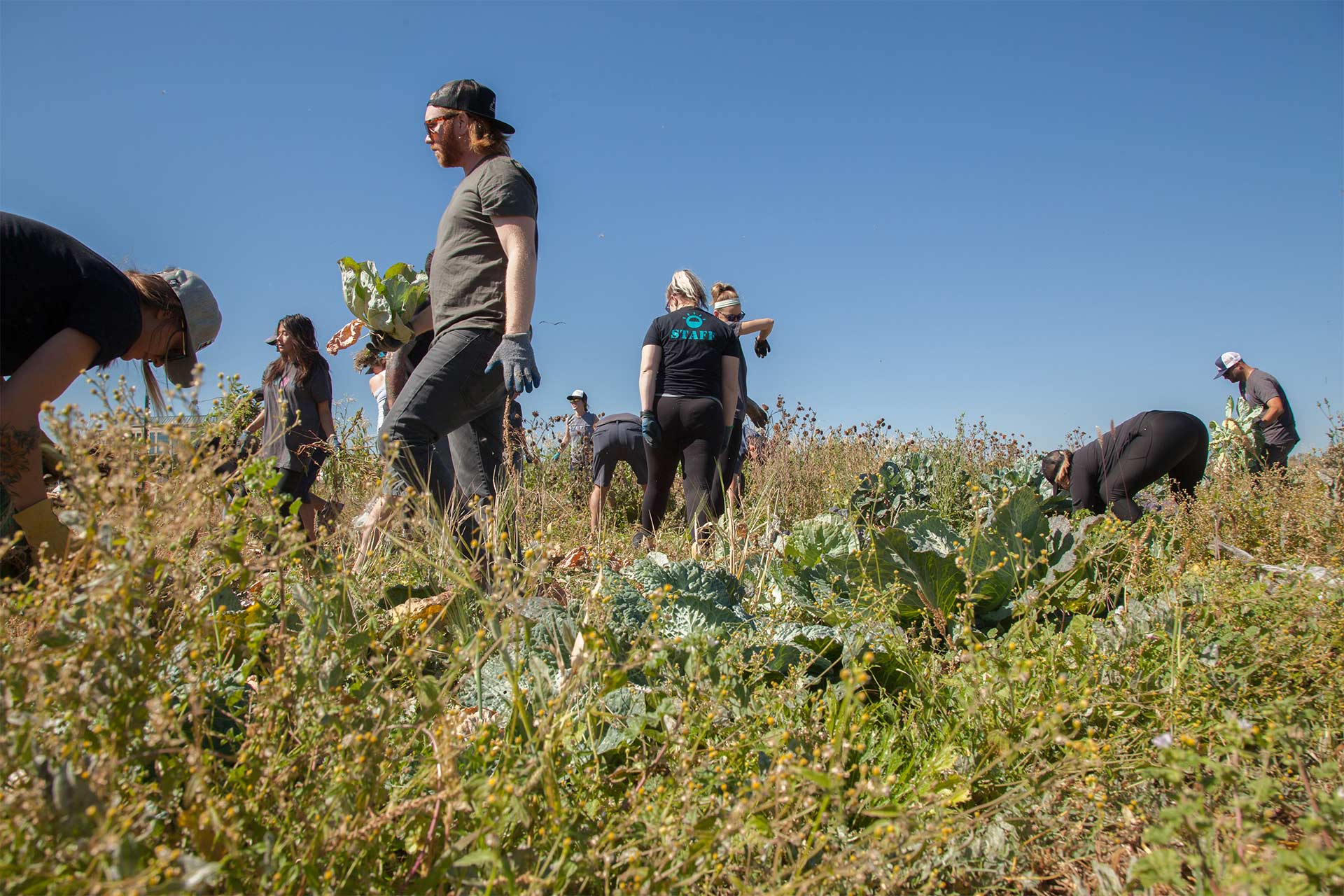
Q: Can you share an example of how you pull together all these different groups—employees, vendors and customers?
During our Denver Urban Gardens activity, it can be 100 degrees outside. We’re out there with shovels, picks, and dirt, sweating on a workday alongside our vendor volunteers, doing six hours of work and then going back to the office. That’s definitely one of the activations that we’ve had, with people calling afterward and saying they’re going to do their own event, or that they’ve adopted a park. They’ll even ask, “Do you want to help us?” This happened with Wana Brands. We’re looking to partner with them on more events. Their values align with ours in so many ways.
Q: You’ve created a unique corporate culture in this space, because you are paying attention to all those little things and they truly matter to you to do your part to make a difference.
I’ll share a story with you. A production company contacted Kelly and Courtney at kindColorado. The production company is profiling Denver and wanted to talk about two things, homelessness and cannabis. And they randomly found Kelly and Courtney on the interwebs and reached out to them and asked, “What can you tell us about cannabis and the homeless problem it’s creating?”
Kelly and Courtney said, “First of all, we need to tell you a little bit about how your assumption is wrong. Homelessness was not caused by adult recreational use legalization in Colorado. There’s a lot of other correlations with what’s happened here. But there’s some other stories you might want to tell.”
Out of the conversation came the fact that there are cannabis companies and dispensaries who are focused on homelessness. It’s one of our pillars at Lightshade. Kelly and Courtney suggested that the production company talk to us.
As a result of our conversations, their Denver episode will focus on Aurora Warms the Night, which is one of the big homeless programs we support, and Lightshade—how we are out there on the streets volunteering with the program.
The majority of Aurora Warms the Night’s funding comes from that marijuana tax fund for homelessness in Aurora, CO (Aurora is located in the Denver metro area).
But the best thing about Aurora Warms the Night is that when you’re there helping, you’re serving the food and pouring the drinks for the people. Then you get yourself a plate and sit down with the people you’ve served. The program’s goal is to humanize the homeless, because it’s so easy for us to walk past homeless people and not see our common humanity with them. And we all do it, even if we hate ourselves for it. So it’s just a way of being like, “You are here. Connect with these people.” And I know I did. The first day that I was out there with Aurora Warms the Night, I sat in my car and cried afterward. The people I met were fantastic but also so vulnerable. They’ve been left behind or they started in a homeless and vulnerable family. And so that’s the kind of impact that we get to tell the story about.

Q: Your slogan is: “The Lightshade difference is night and day.” We can definitely see that in terms of the CSR work you do. But what does it mean for consumers?
Our slogan is a play on words. First of all, Lightshade—the name of the company—comes from the need for a cannabis plant to have equal parts of sun and shade. Also, our loyalty program is called the Night and Day Club.
Our slogan is a way for us to differentiate ourselves. It is aligned a lot with CSR. It’s also about the consumer experience, about how the retail environment looks and feels.
Q: Can you describe your retail environment?
We’re really trying to help elevate the cannabis industry just by the look and feel of the retail environment. We use a lot of reclaimed barn wood. We have natural finishes and stained concrete with rich colors. The furniture is meant to feel more like you’re in someone’s living room, a very comfortable and elegant living room.
Our Dayton store has a fireplace in the waiting area. It’s located right next to a retirement community. We get a lot of older people who shop at our Dayton dispensary, which is a very comfortable, warm and welcoming space. When people walk in, they’re comfortable and they don’t feel nervous.
We also take the training of our bartenders and our front desk staff very seriously. We do something outside the norm. Rather than use an off-the-shelf program for training, we developed our own training program and have our own training director. Our program covers product knowledge and compliance issues.
There are so many things that bartenders and front desk staff need to know. They have to have answers for everything, especially, “I’m not a doctor.” That’s where Leaf411 comes into the picture.

Q: How does your partnership with Leaf411 help your budtenders and customers?
The partnership has created opportunities for us that we didn’t have before, because one of the keys to being a successful cannabis retailer is education. Because of the limits in our industry, there’s a lot we just cannot do.
That face-to-face relationship between the budtender and the consumer or patient is the one shot we have at providing education that they need to have. We’re not able to tell them certain things because it doesn’t fall within the legal scope. However, being able to give them a business card or the pamphlet to Leaf411 provides the opportunity to open the floodgates of education. We weren’t able to provide that before. I’ve seen it at stores, and I’ve heard it from budtenders.
For example, we had two customers at the Dayton store the other day who had chronic pain and sleep problems. I explained to them what the budtender could tell them. We can say something like, “This is my favorite thing.” But we can’t say why. Being able to refer customers to Leaf411 is a perfect solution. It’s really important for us to be able to share a verifiable, trusted resource.
Q: As Leaf411 continues to expand, we’re getting more inquiries from dispensaries in both Colorado and other states. From the dispensary perspective, what would you tell them about partnering with Leaf411?
When we heard what you were doing, we were down. We were all in just with the idea.
Dispensaries need to have access to nurses or doctors as credible resources to refer their patients and consumers to. If you allow your budtenders to give medical advice, you’re going to be shut down in a month, maybe less. And if you don’t operate in the complete black and white area of compliance and regulatory environment, you’re not going to last long.
The only tool we have is Leaf411, outside of doctors. And sending customers to doctors is cost-prohibitive in many cases.
From a business perspective, partnering with Leaf411 is all about customer care, service and being there for your community. You will build customer loyalty with this kind of service. You will have stories like ours, with people who have never walked into a dispensary before and receiving the support they need. They were absolutely thrilled and amazed at what came of that experience and probably changed their lives. Our partnership with the Leaf411 cannabis nurse hotline is invaluable. You know, we just couldn’t be more thrilled.
Someone told me this a number of years ago and it really stuck with me. I don’t remember jokes or poetry, but I have never forgotten this. And it’s that with nurses, you can find someone who is as curious about what’s going on with you as you are.
This interview has been edited for length and clarity.
For More Information
Lightshade has eight recreational dispensaries in the Denver metro area, with five of those dispensaries also serving med patients. You can learn more about Lightshade’s community partnerships here.
Leaf411 is proud to have Lightshade as one of our founding members. Lightshade is committed to elevating cannabis’s reputation by providing high-quality product, experiences and information. Their ethos align with Leaf411’s commitment to kindness and professionalism.
Additional Resources
Check out our recent post, “Planning Your First Dispensary Visit,” if you’d like additional tips before heading out the door to Lightshade or any other legal dispensary.
Whether you’re a patient or a budtender, our cannabis-trained nurses are available to answer your questions on our FREE anonymous hotline at 844-LEAF411 (844-532-3411).The Leaf411 cannabis nurse hotline provides free, anonymous education and directional support to the general public about the safe use of legal cannabis. We partner with select business members who meet our rigorous standards to extend our education and outreach efforts.
Talking to Your Partner about Cannabis
Medically reviewed by Katherine Golden, RN
Written by Denise Rustning
Cannabis has gone mainstream. Medical marijuana is legal in over half the states. Also, recreational use is legal in 11 states as well as in the District of Columbia and all of Canada.
Cannabidiol (CBD) hemp products containing less than 0.3% tetrahydrocannabinol (THC) are legal at the federal level, and widely available online and in retail outlets in almost all states. Compliant CBD hemp products should not get you high (cause impairment or intoxication), but offer many health benefits.
As legalization has spread, so has acceptance. According to a November 2019 Pew Research poll, 67% of Americans say marijuana should be federally legalized. This support exists across all age groups except for the Silent Generation, made up of people over the age of 75.
The shifting public attitudes might not be reflected in your own home, though.
How do you talk to your significant other if you’re curious to try cannabis but don’t know what they’ll think? This can be especially tricky when your partner has negative experiences, fear or preconceptions about cannabis.
Know Why You Want to Use Cannabis
Before you broach the topic with your partner, take stock of why you want to try cannabis. Are you “canna-curious” and interested in seeing what options exist in the legal marketplace? For example, some people are turning to THC-infused drinks and other products as alternatives to wine or beer.
Many people also seek out cannabis based on growing research about the plant’s health benefits.
Remember that cannabis is not a cure-all or magic pill. However, it can serve as a powerful tool.

Anticipate your Partner’s Concerns
Many of us had less-than-ideal experiences with marijuana in the past, when it was illegal everywhere. Product quality was iffy at best, and you never quite knew what was in the flower (buds) you were smoking. If you got caught, you faced legal charges, fines and even jail time, along with a criminal record.
Keep this recent history in mind when you bring up cannabis to your partner. Even someone with past cannabis experience may respond with skepticism at first, given the nature of their previous experiences.
You can address these concerns by talking about how state regulations provide more oversight and consistency in products sold at legal dispensaries.
While CBD products sold in retail outlets and online are not subject to this same level of oversight, most high-quality manufacturers provide Certificates of Analysis (COAs) with test results for their products to see exactly what makes up that particular product.

Stigma: The Elephant in the Room… On the Couch Eating Chips
Cannabis still suffers from stereotypes, despite the fact that more athletes, businesspeople, and other high achievers are openly embracing the plant.
When you tell your partner you want to try cannabis, they may immediately picture you glued to the sofa with a bag of Doritos. Those old stereotypes are tough to shake!
Dr. Dave Gordon, founder of 4Pillars Health & Wellness, addressed some of these stereotypes in his recent interview with Leaf411.
“A lot of the cannabis propaganda that people have heard over time is just wrong,” he says. “The perfect example is when someone asks, ‘Is cannabis going to cause me to lose my brain cells?’ … Actually, the science shows that cannabis is probably going to protect your brain.”
You can read more from Dr. Dave on common misconceptions and what the research says about cannabis here.
Putting Cannabis in Context of Lifestyle Changes
When talking with your partner, put your interest in cannabis in context with other areas of your life, explaining how it fits with other goals and priorities. For example, if your goal is to improve your sleep, share other lifestyle changes you’ll be trying along with cannabis, like limiting screen time before bed.
Also, you can point out that while we try many new things in our lives, very few (if any) become all-encompassing. For example, when you took up running, it didn’t mean you were suddenly skipping work to spend all day out on the trails. Your experience with cannabis will likely follow a similar path, becoming a balanced activity, not a problematic one.
Religion and Cannabis
Cannabis prohibition in the United States has always carried a strong moral undercurrent, using language such as “devil’s lettuce,” and stereotyping cannabis users as lazy stoners.
Most of today’s religions are against recreational use. Medical marijuana, on the other hand, is where many religions (but not all!) have shown more openness.
If your partner’s concerns are based on religion, try to understand their perspective. They may be concerned that you are not treating your body with respect, or that your use will be excessive and sinful.
If you’re only interested in using cannabis for recreational purposes, you’ll have a tough argument to make.
However, if you’re seeking cannabis for health purposes, consider framing your perspective to address your partner’s concerns. For example, talk about how you are seeking alternatives to prescription painkillers that have harmful side effects.
Also, you can point out that your goal is to heal, not to get high, and what that means for you.
For example, you might be starting with CBD hemp products that are federally legal and have no intoxicating effects. If you’re using products with THC, you might talk about how you plan to start low and go slow with dosing, an approach recommended by Leaf411 nurses, Dr. Dave and other cannabis health practitioners. A big misconception is that you need to feel high (intoxicated) to reap the medicinal benefits. This is not the case for most people using THC.
Talking About Substance Abuse Concerns
Substance abuse is a complex issue. You only need to look as far as a set of siblings, where one sibling becomes an alcoholic while the other does not, to see it’s not just a matter of genetics or upbringing.
Your partner may understandably be concerned if they’ve had friends or family members who abused marijuana. Anything can have an abuse potential, from food to alcohol to cannabis, so explaining your intention is key.
It doesn’t help, either, that the Food and Drug Administration (FDA) lists marijuana as a Schedule 1 drug along with heroin, despite significant evidence that it is not nearly as harmful and has much lower potential for addiction. Part of the Schedule 1 designation is based on the FDA’s position that marijuana has no medical value.
This designation, ironically enough, limits the abilities of academic and medical professionals to conduct research on cannabis’s potential health benefits.
In other words, the FDA requires clinical research to support moving a drug down to a lower level on the schedule; however, due to FDA restrictions, it’s extremely difficult for researchers to conduct the very studies that the FDA requires.
Can someone become dependent on cannabis? According to Dr. Robert Navarra, a psychologist at the Gottman Institute, substance use and addiction fall on a spectrum. About 9% of people who use cannabis will develop cannabis use disorder which means they are dependent on—but not addicted to—cannabis. To put that in perspective, researchers estimate that approximately 30% of Americans have alcohol use disorders.
Respond to your partner’s concerns by talking about what your overall goals are in using cannabis, as well as how this plant-based tool fits in with other strategies you’re trying. If you’re embracing the start low and go slow approach, you can share that knowledge with your partner as well. Your goal is to find the right amount for your purposes.
CBD and Marijuana Health Concerns
In January 2020, new research came out from the American College of Cardiology showing that cannabis may interact with certain cardiac medications.
If your partner saw that study in the news, or other past news about the FDA questioning the safety of CBD, they might have hesitations, especially if you regularly take prescription medications.
We agree that it’s imperative to check with a medical professional before adding any new medicine to your ongoing regimen. You can check out our recent post on the subject here.
Our Leaf411 registered nurses are also available to talk to you or your partner about potential medication interactions with cannabis.
Legal Cannabis and the Workplace
First, we’ll say that if you live in a state without legal recreational or medical marijuana, then we strongly encourage you to limit yourself to CBD hemp products which are federally legal. CBD hemp products may provide many cannabis plant benefits, minus the intoxicating effects of THC.
CBD hemp is also legal at the state level nearly everywhere. (Idaho, Nebraska and South Dakota are the exception.)
Even in a fully-legal state with recreational and medical marijuana, your partner may have legal concerns.
For example, a med card or state legalization doesn’t serve as a defense against positive drug test results in the workplace.
If you work in a job that requires drug testing, then we recommend looking for CBD products that clearly state “No THC” on their label. Verify the product quality and contents, as well, by reviewing the manufacturer’s COA listing the lab test results. Be sure to share this information with your partner as well, so they can understand how you’re taking steps to use safe products.
Is your partner worried that secondhand marijuana smoke could cause them to fail a drug test? This is a common concern. We’ve reviewed the research and haven’t been able to find any published studies that passive or incidental exposure will result in a positive drug test.
Offer Cannabis Resources and Education
Does your partner know the difference between full-spectrum CBD hemp containing under 0.3% THC versus marijuana products with higher THC levels? Do they understand that you don’t need to smoke marijuana for it to be effective?
Check in with your partner to make sure that you’re both talking about the same thing. They might assume that you plan to smoke or vape marijuana flower that will get you high, while you’re actually planning to start with an edible or oil that contains more CBD than THC.
Your first instinct might be to answer your partner’s questions with “Google it.” However, there are thousands of websites offering misinformation on both sides of the cannabis debate.
That’s one reason we formed the Leaf411 nonprofit hotline—to provide a trustworthy resource to the public, providing medically-sound, balanced information.
Our Leaf411 library is a good starting point, offering a list of resources providing a balanced view.
Our registered nurses who staff the FREE Leaf411 hotline are also a great resource. You don’t have to be a cannabis user to call us. We take calls from many non-cannabis users, including spouses, family members, and clinicians who are simply seeking more information to help their patients.

Creating Shared Expectations Around Cannabis Use
It’s important to talk to your partner about how, when and where you plan to use CBD hemp or marijuana, coming up with a plan that both of you can live with.
Some people simply don’t like the smell of marijuana. They may worry that it will cause everyone in the house to smell like they’ve been smoking, or that neighbors will notice the smell. This is a legitimate concern!
Fortunately, there are many alternatives to smoking, including vapes which produce less odor, as well as edibles, tinctures, and even transdermal and topical products.
Other areas you’ll want to discuss are listed below. Your decisions will likely be shaped in part by why you’re using CBD hemp or marijuana. For example, if your goal is to reduce social anxiety, then it won’t be especially helpful if your partner insists that you only use cannabis at home after everyone else is in bed.
Kids: Whether or not to use cannabis around your children is both a highly personal decision, and also a hotly-debated issue. Pediatricians express concerns about secondhand smoke, as well as risks with parents being intoxicated with any substances, including cannabis, while caregiving. On the other hand, more parents like Kaycee Bawdon are speaking out about responsibly using cannabis while parenting. Many parents point out that drinking alcohol around kids is widely accepted, even though it is a more dangerous substance. As a starting point for discussing this issue with your partner, check out this article to read rules different parents have set around using cannabis at home.
Visitors: For many of us, marijuana was a common presence in our younger days. Visit a friend’s dorm room, and they might offer you a hit off their bong. Of course, many dorm room relics no longer fit in our lives.
While many adults enjoy the social aspects of modern cannabis culture, others prefer to keep their use private. Talk to your partner about how to handle this issue in your home, recognizing that different situations may call for different rules.
A Few Final Thoughts on the Importance of Trust
Your partner may not be the biggest fan of cannabis, but hopefully they will respect and support your right to use CBD hemp or marijuana products in a legal, safe, responsible manner. You can help the cause, so to speak, by being truthful about your use. Nothing creates mistrust faster than sneaking around and lying.
Respect is a two-way street. If your partner chooses to not use CBD hemp or marijuana, it’s important for you to respect their decision. Resist the urge to pressure them to try your new vape “just one time” even if you think they’d love it.
Need Help Starting the Conversation?
Our Leaf411 cannabis-trained nurses are available to provide balanced education and guidance on safe, legal cannabis use. We’ve even had couples call and put us on speaker phone, so they could both be part of the conversation!
We encourage you or your partner to call us with your questions at 1-844-LEAF411 (844-532-3411).
The Leaf411 cannabis nurse hotline provides free education and directional support to the general public about the safe use of legal cannabis. We partner with select business members who meet our rigorous standards to extend our education and outreach efforts.
